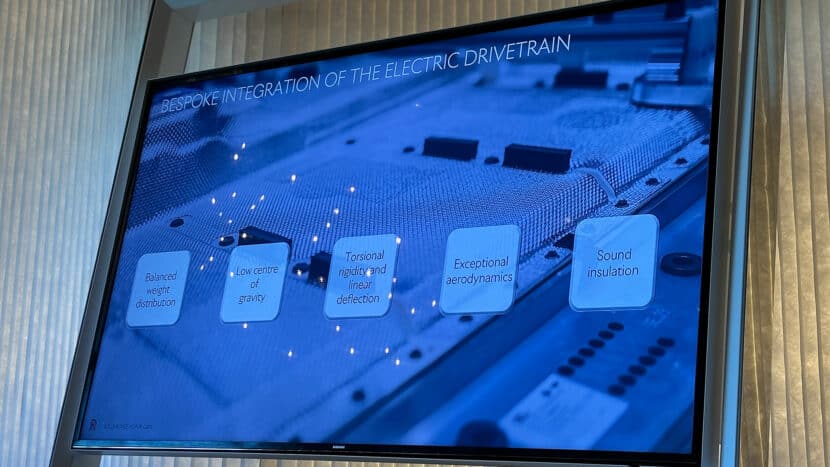Most of us weren’t terribly surprised by Rolls-Royce’s decision to commit to an electrified future. The inherent benefits of EVs – immediate, silent, and effortless power delivery – seemed a perfect fit for the luxury brand. The brand even has a lineage of electricity, thanks to co-founder and electrical engineer Sir Henry Royce. We chat with Dr. Mihiar Ayoubi – director of engineering at Rolls-Royce – and get a little more insight into the engineering in the new Rolls-Royce Spectre luxury electric vehicle.
Rolls-Royce First, Electric Second
“We’ve been waiting for this for a long time,” Dr. Ayoubi starts, explaining how EV propulsion is an obvious fit for the brand. He tells us that as well-reputed as the V12 engine is, electric simply accomplishes the brand’s goals much better. “We wanted to elevate the electric drive experience to the luxury level,” he says, “to merge the joy of the highly-rigid body of a Rolls-Royce with the purity of an electric drivetrain to deliver an exceptional driving experience.” That’s perfectly on-brand for Rolls. But a particular goal throughout development was to make a Rolls-Royce first and an EV second.
What does that mean? “We wanted the scale of this coupe to be beyond any other coupe in the luxury segment,” Dr. Ayoubi says. He considers the Spectre the spiritual successor to the Phantom coupe. An entirely new body offers incredibly short overhangs with the largest coach doors ever produced. One challenge was keeping the roof’s highest point on par with the outgoing Phantom – especially while adding massive 23-inch wheels. So, they lowered the seating position, which was enough to retain Phantom-like proportions without sacrificing dynamics for the driver or passengers.
“The most demanding challenge is to re-engineer the DNA,” Dr. Ayoubi says. “When you’re talking about DNA, you want to deliver the three core features: effortlessness, waftability, and magic carpet ride.” It sounds like they’ve managed to do a good job, too.
The Rolls-Royce DNA
Every Rolls-Royce design follows three main engineering concepts: effortlessness, waftability, and magic carpet ride. Dr. Ayoubi breaks these down. “Effortlessness, I refer to that with predictability of the car, controllability,” he starts. “Waftability, you’re talking about compensating for the inertia of the car, feeling like the car is flying over the road. Finally is magic carpet ride, which is sitting in a car that gives you every information of the road. To be under control yet disconnected from the environment to have your silent cabin.”
Integrating all of these guiding virtues into one vehicle is never easy. Then, Dr. Ayoubi’s team also faced the challenge of an all-new powertrain with all-new bodywork. Dispersing the battery and other electronics throughout the car was important to maintaining balance in the chassis. The aforementioned focus on a low roofline ensured a lower center of gravity. Dr. Ayoubi continues. “We’ve built the battery into the cabin, and that delivers a very rigid cabin. We increased rigidity by 30% compared to Ghost.” Of course, building the battery into the cabin also helped reduce NVH, keeping it comfortable and quiet. Yet another benefit? The ability to use less sound deadening, as the battery serves as a natural barrier.
Keeping Drivers Connected
Every automaker is struggling with the challenge of keeping drivers connected in their EVs, and Rolls-Royce is not immune. “What we want is to deliver every information from the road back to you in the car, yet disconnect you from disturbances outside,” Dr. Ayoubi reiterates. How did they do it? “You know that we have four-wheel steering, four-wheel drive. We have two active roll bars, the largest air suspension ever. We have adaptive dampers, quite complicated systems that react within milliseconds. This is done by the so-called Ride Control Domain, a bigger control system orchestrating those subsystems.” A pause until he proudly concludes, “We didn’t only create an entirely new body for Spectre. We also introduced an entirely new electric backbone.”
A glimpse behind the curtain, you ask? “We have about 25 more algorithms on board than the usual Rolls-Royce. Each of them contains about 1,000 functions. It yields about 140,000 signals between the receivers and emitters. But Dr. Ayoubi quickly stresses that Rolls-Royce is about more than just numbers. “We don’t refer to acceleration from zero to 60. We don’t talk about lap times, and we don’t talk about acceleration. Because refinement of Rolls-Royce needs a deep understanding of our clients.”
Champagne Test Meets EV Powertrain
“Let me start this way: if any of you might apply for a chauffeur job as a Rolls-Royce driver, you have multiple chances to get fired,” Dr. Ayoubi begins. “One of these is called the champagne test.” Those of you more familiar with the brand may already know about this. Essentially, proper piloting of a Rolls-Royce should mean braking and acceleration are smooth enough to permit a passenger to sip champagne without spilling. Probably the most real-to-life test ever conducted, truthfully.
Anyway, the instant torque of an electric powertrain is obviously a natural enemy of the champagne test. So, flying in the face of current EV convention, Rolls-Royce has artificially delayed the response of the accelerator pedal. This gives the vehicle a more natural crescendo to speed instead of the “rocketing” most modern EVs are guilty of – and, indeed, embracing. “We have multiple control systems involved,” Dr. Ayoubi explains. “All of them are electrically driven; they should act synchronously to deliver one behavior. Solid and consistent behavior to the customer.”
2.5 Million Kilometers of Testing Can’t Be Wrong
“This testing program was devised to go far beyond the expectations of our customers,” Dr. Ayoubi claims. 2.5 million kilometers were covered in four different loops, and every vehicle component was scrutinized. This commitment to testing provided more guidance for Dr. Ayoubi. “We don’t ever have adaptive modes. We don’t have buttons for sportive driving; we’ve driven 2.5 million kilometers; we know the best setting for the car.” But there are two aspects Dr. Ayoubi treated as unknowns. The first is sound. The other is regenerative braking.
So, a special Rolls-Royce sound was designed and is available for customers who want a unique aural experience while sipping their champagne. Dr. Ayoubi saw no alternative to introducing a separate driving mode for regenerative braking. “Our customers are always used to ‘sailing’ with their combustion engines. Nevertheless, we found it appropriate to introduce the new mode.”
Rolls-Royce is embarking on a new adventure – and arguably, fulfilling its destiny – with EV propulsion. The Spectre gives a brilliant insight into the brand’s future, and Dr. Ayoubi and the engineering team at Rolls-Royce are doing work Sir Henry Royce would certainly have approved of.
ROLLS-ROYCE Spectre Morganite
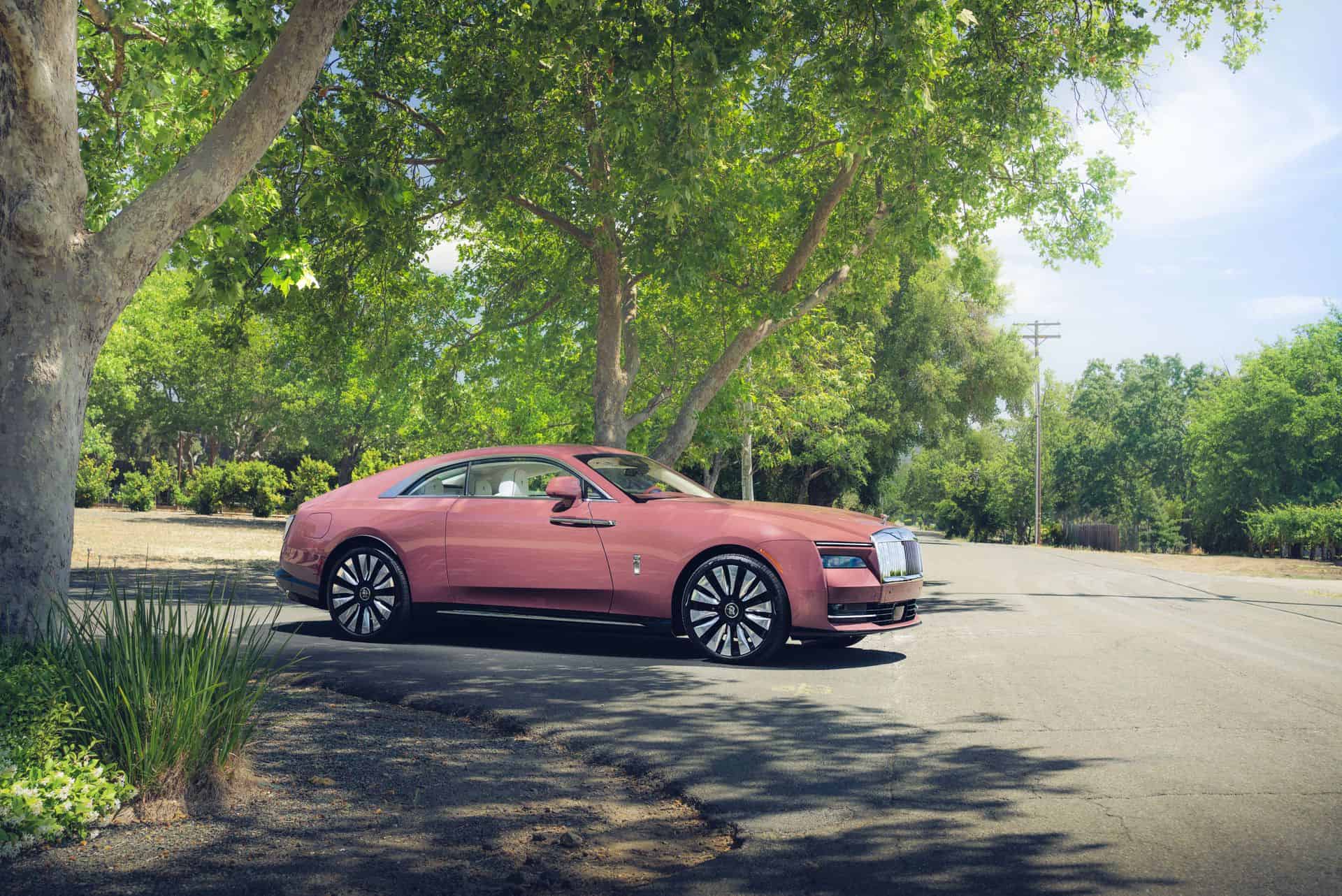
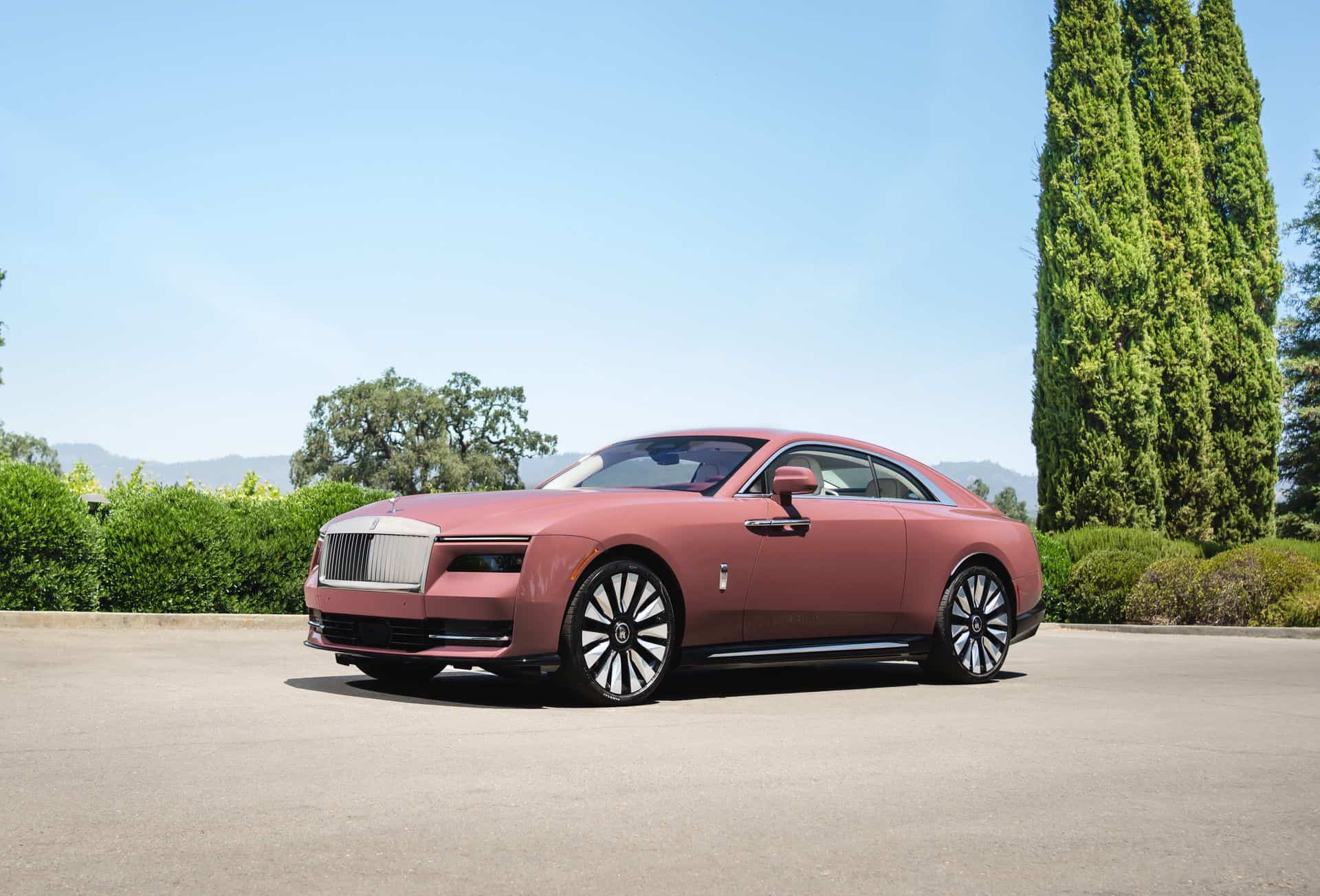
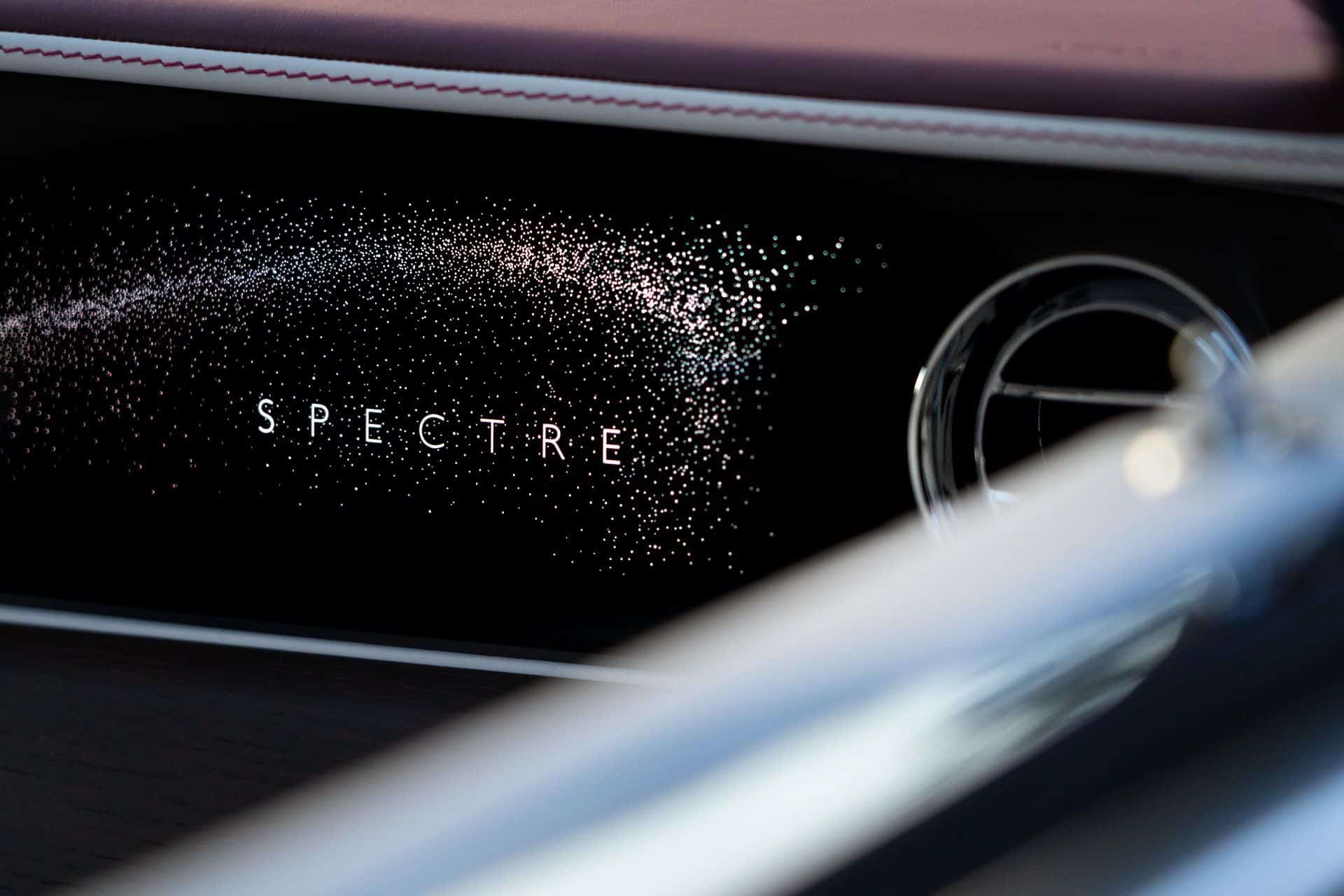
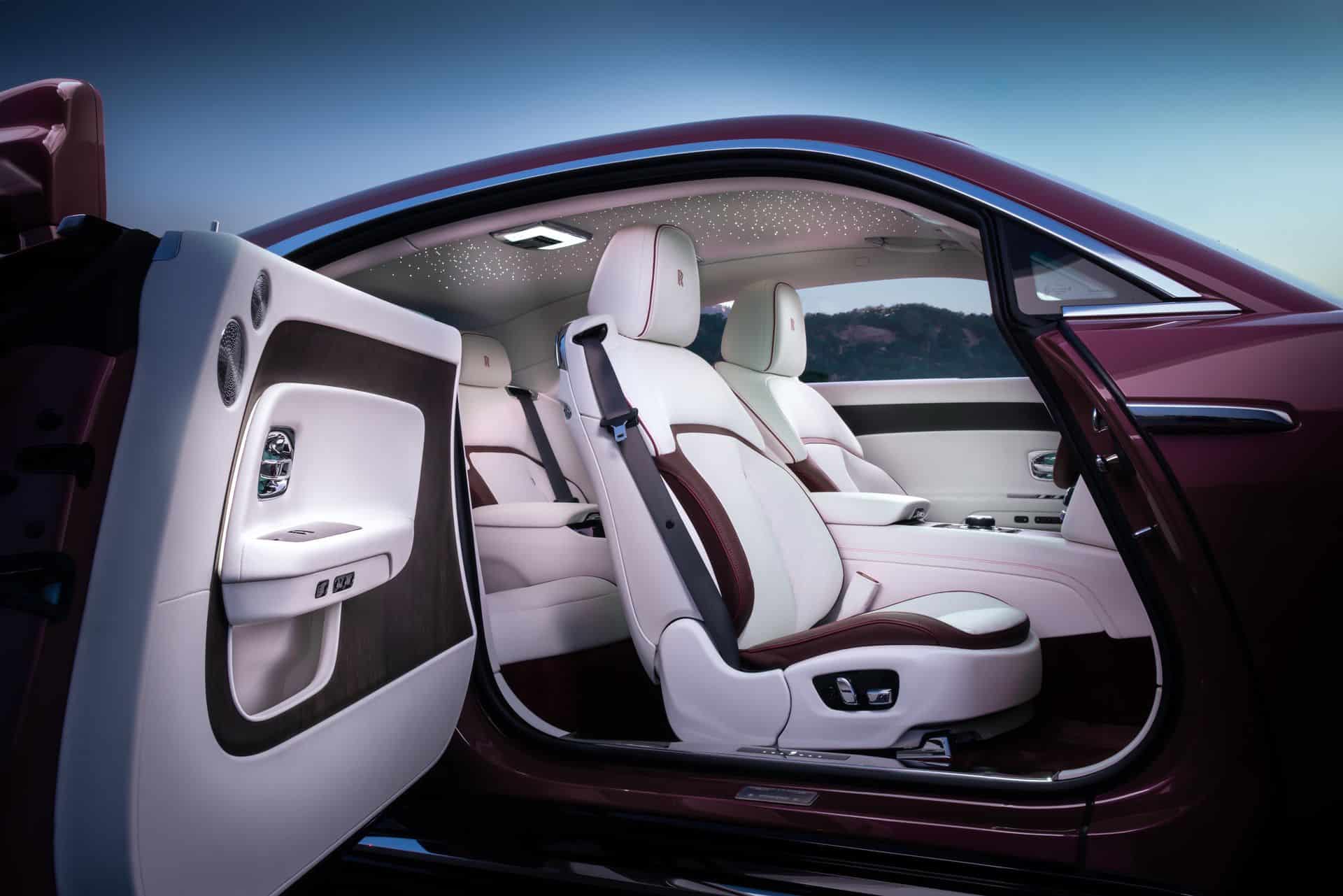

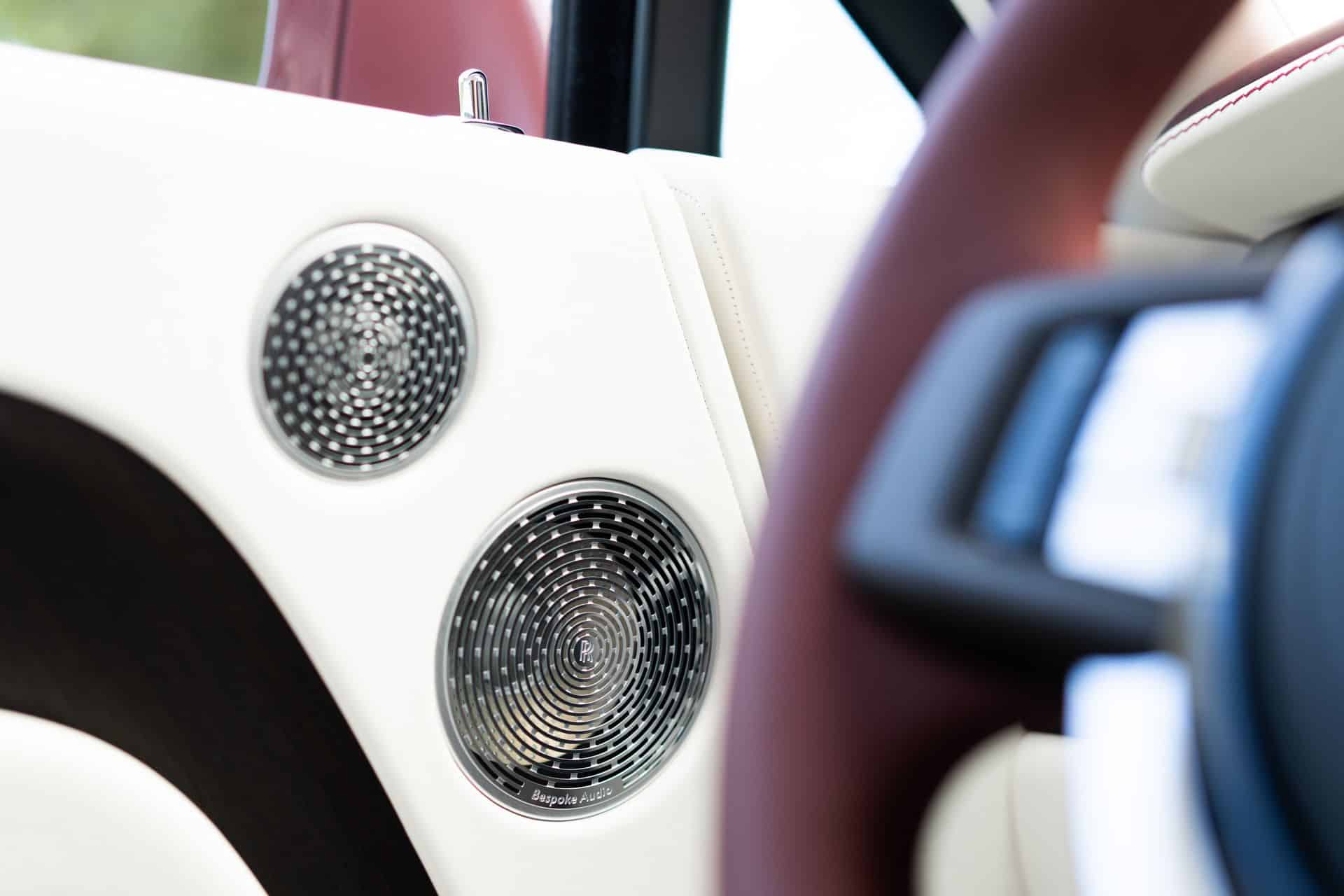
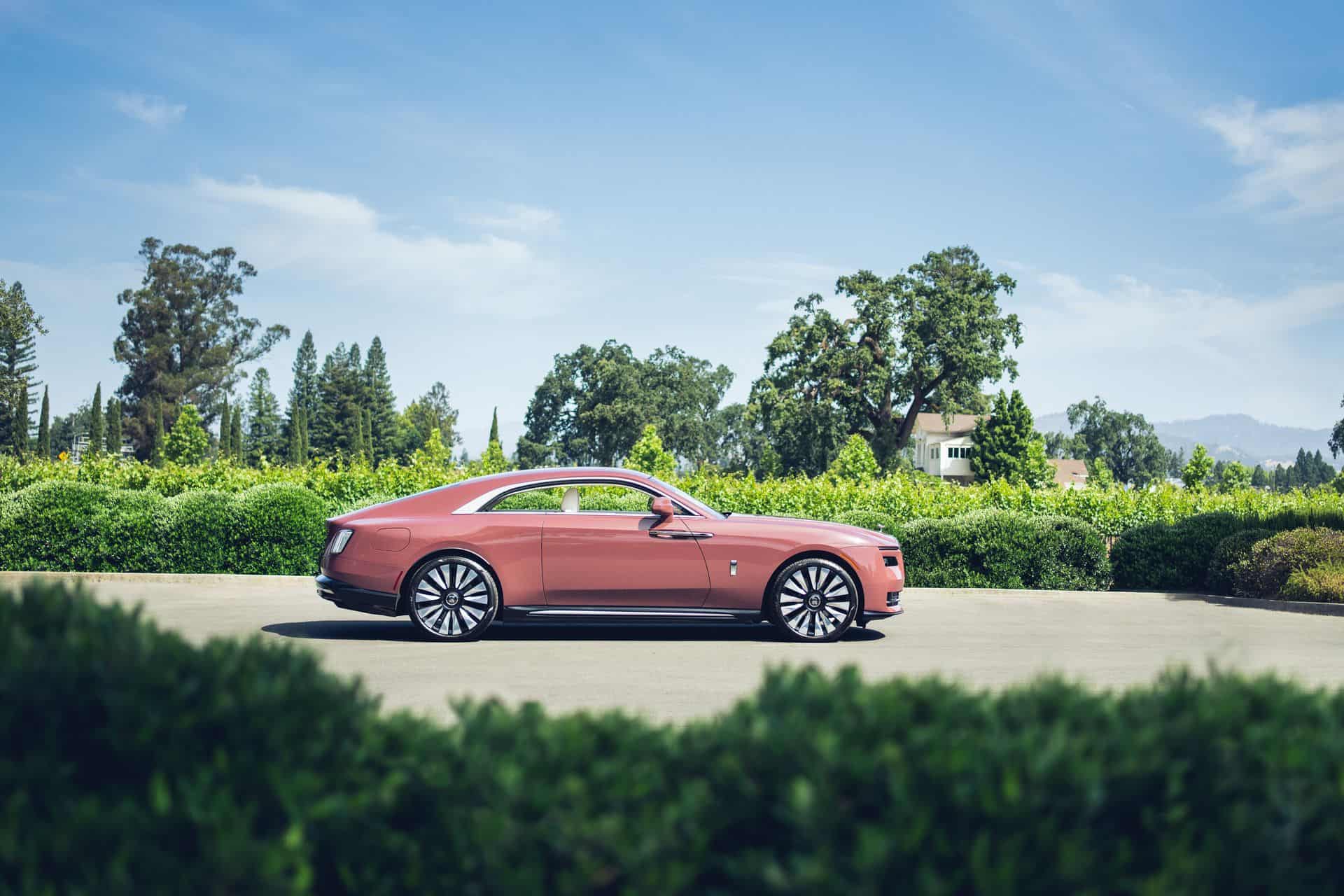
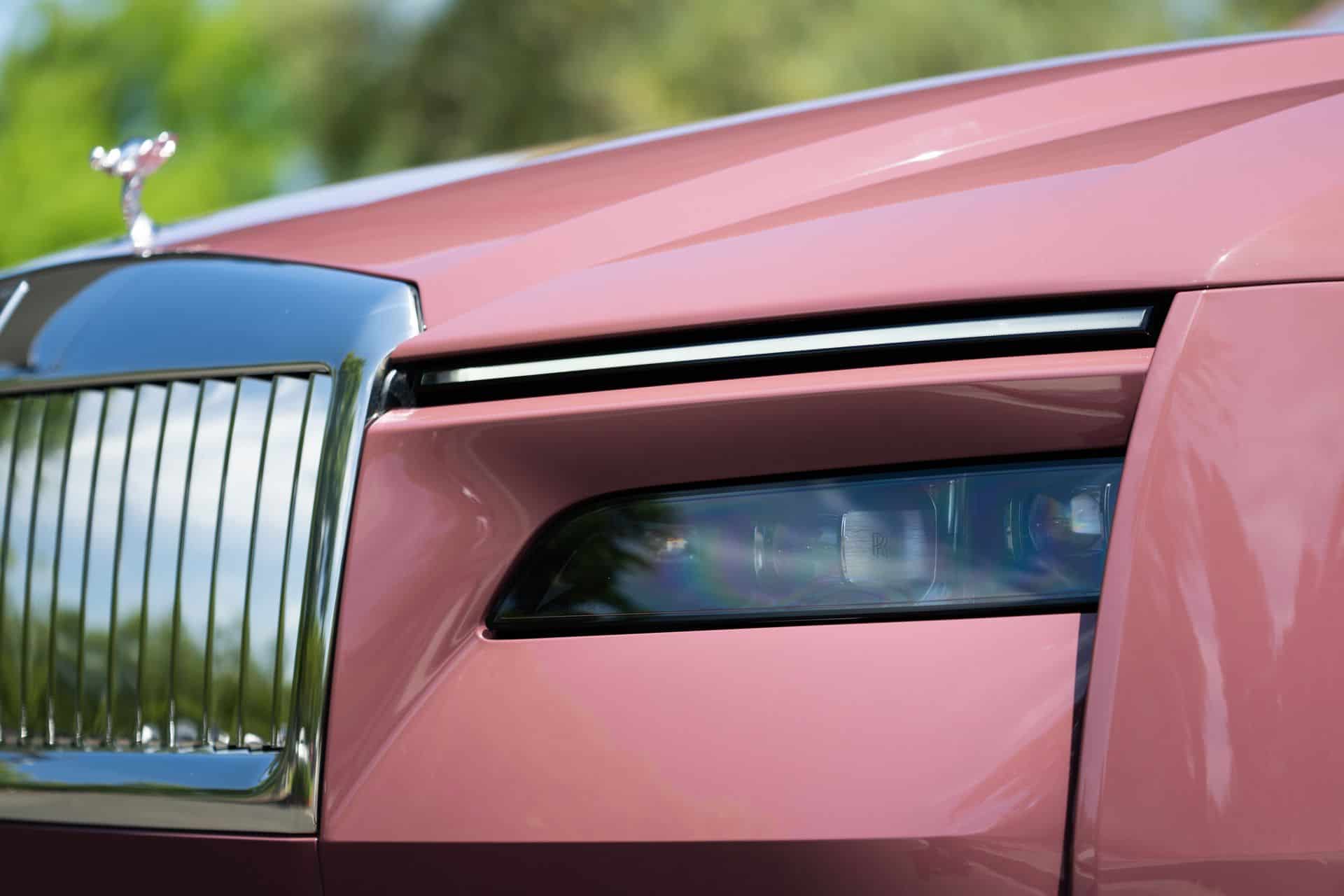
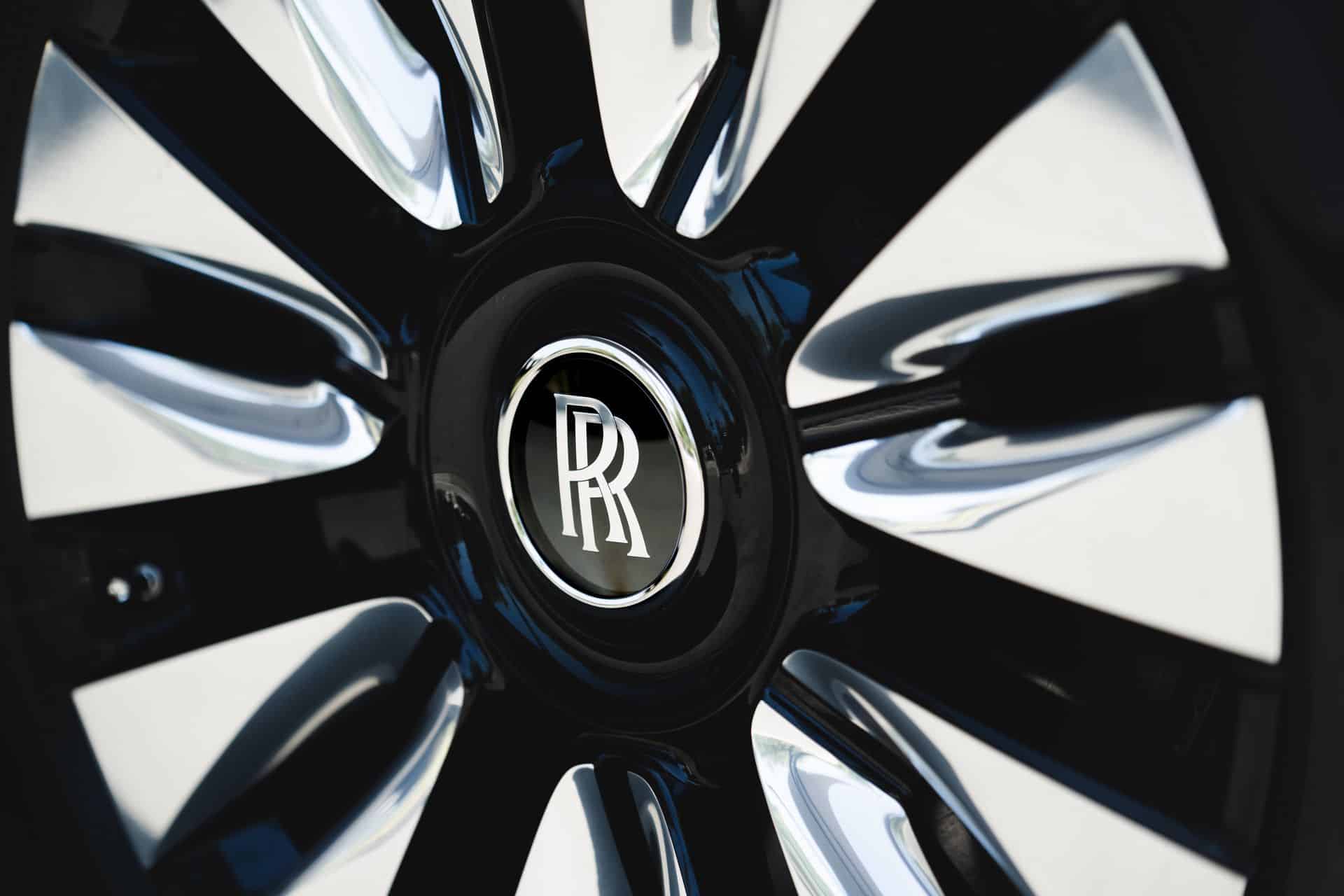
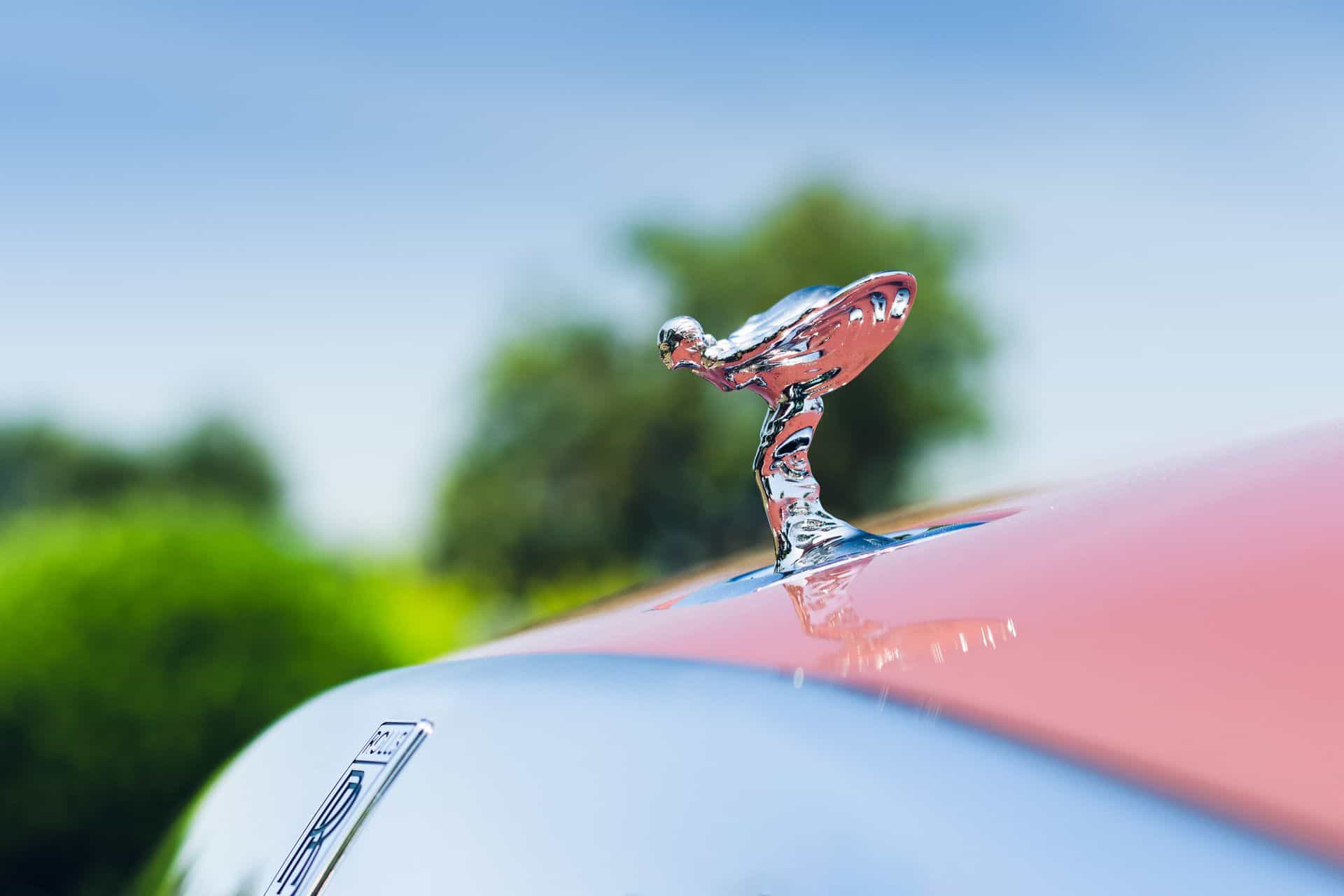
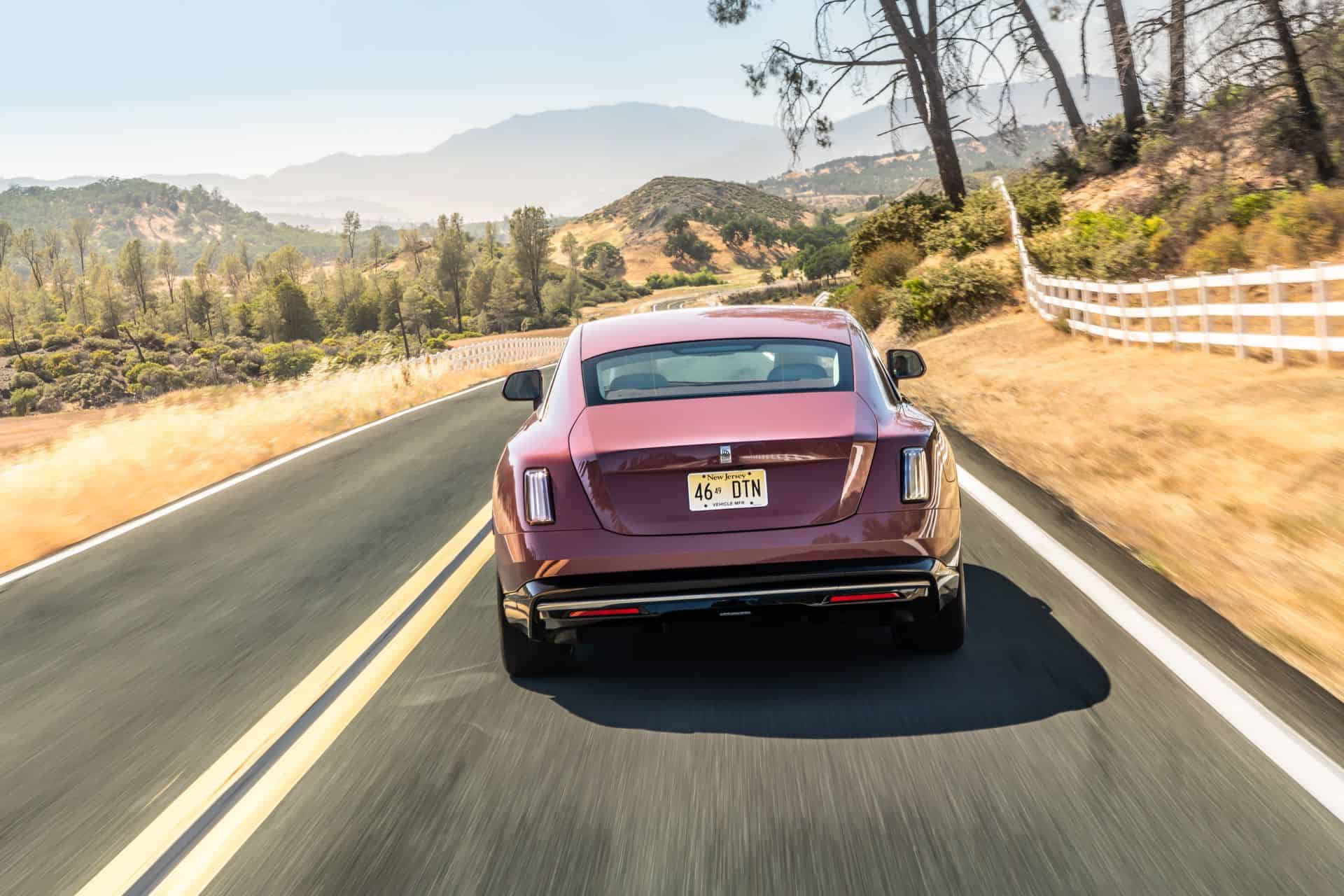
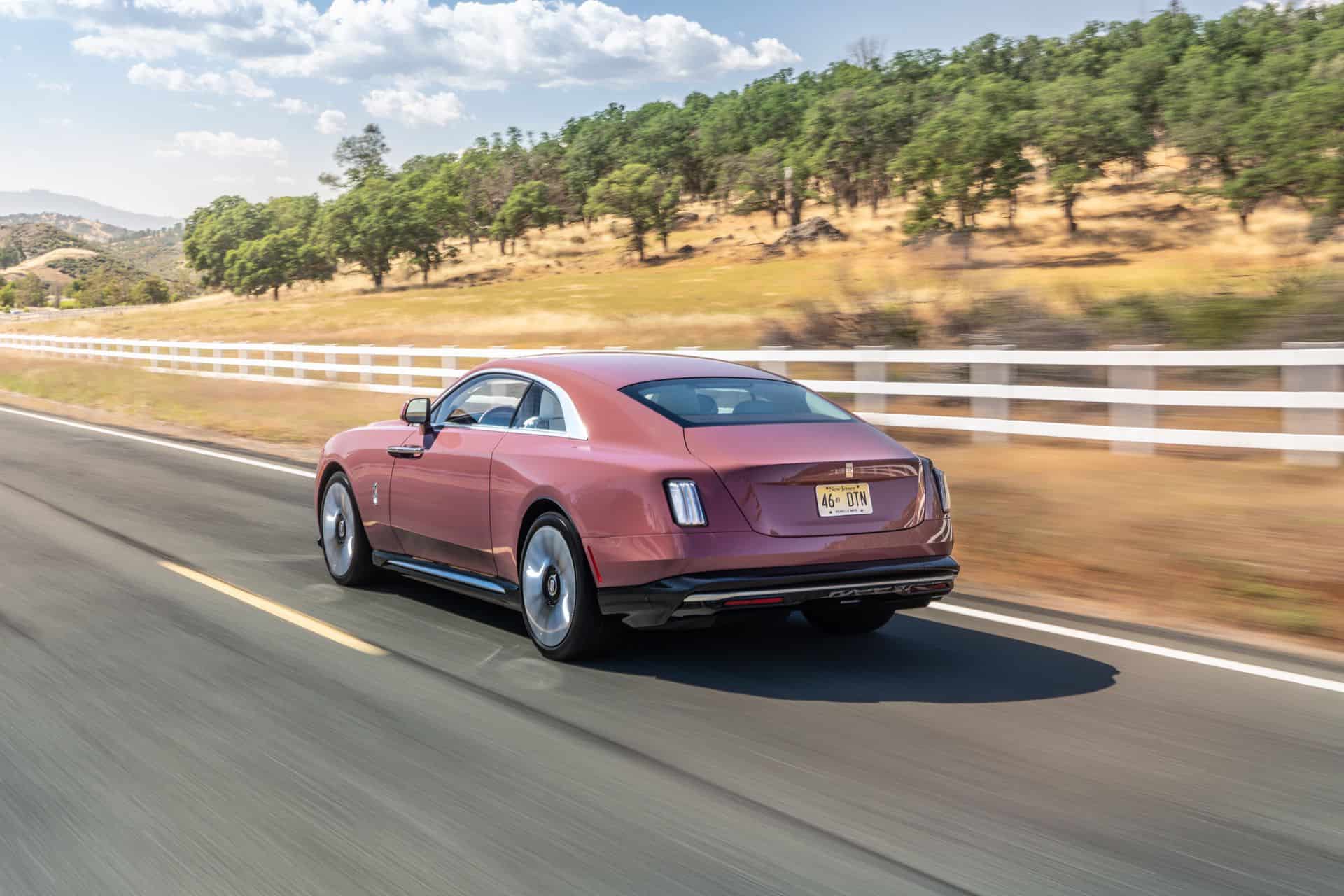
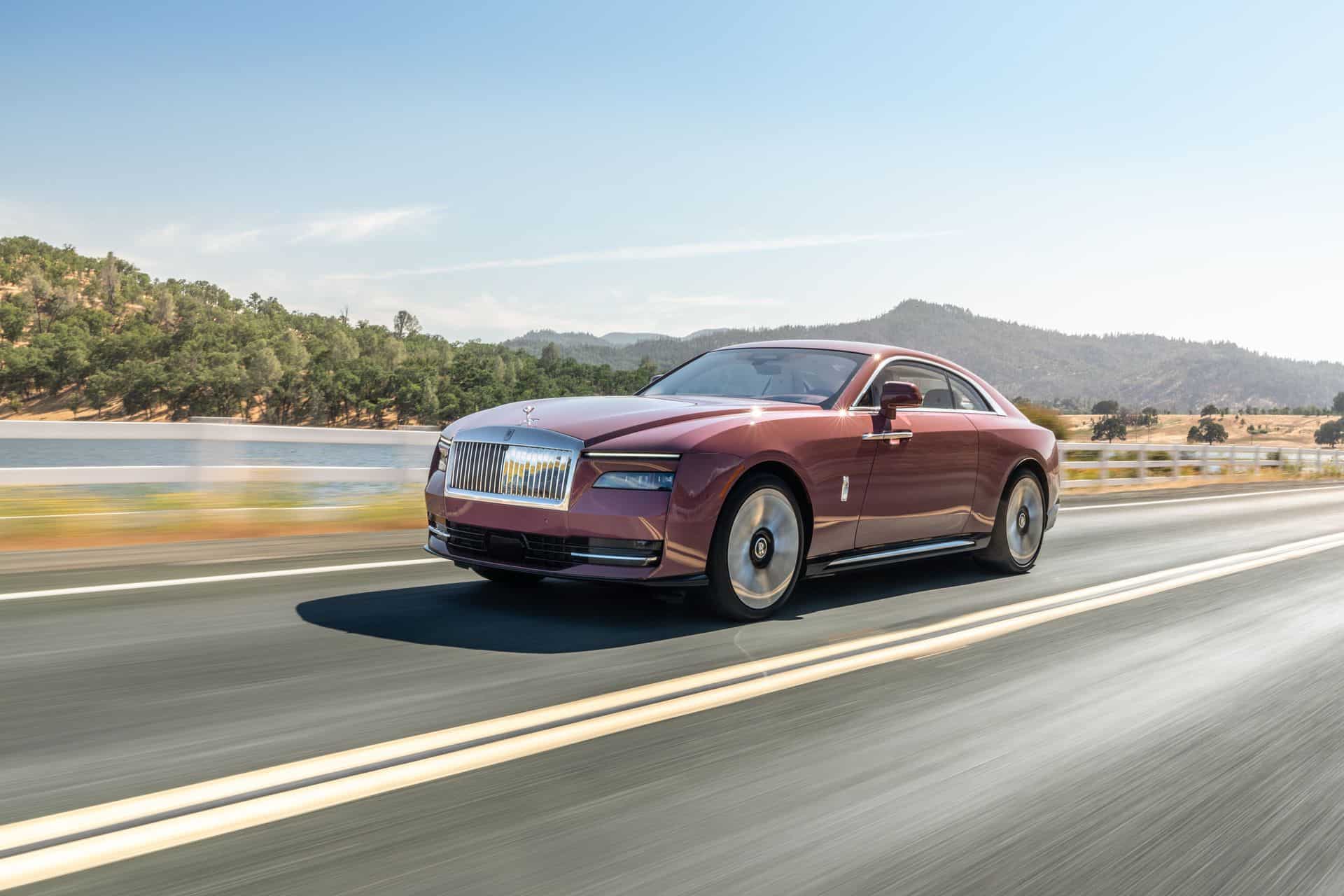
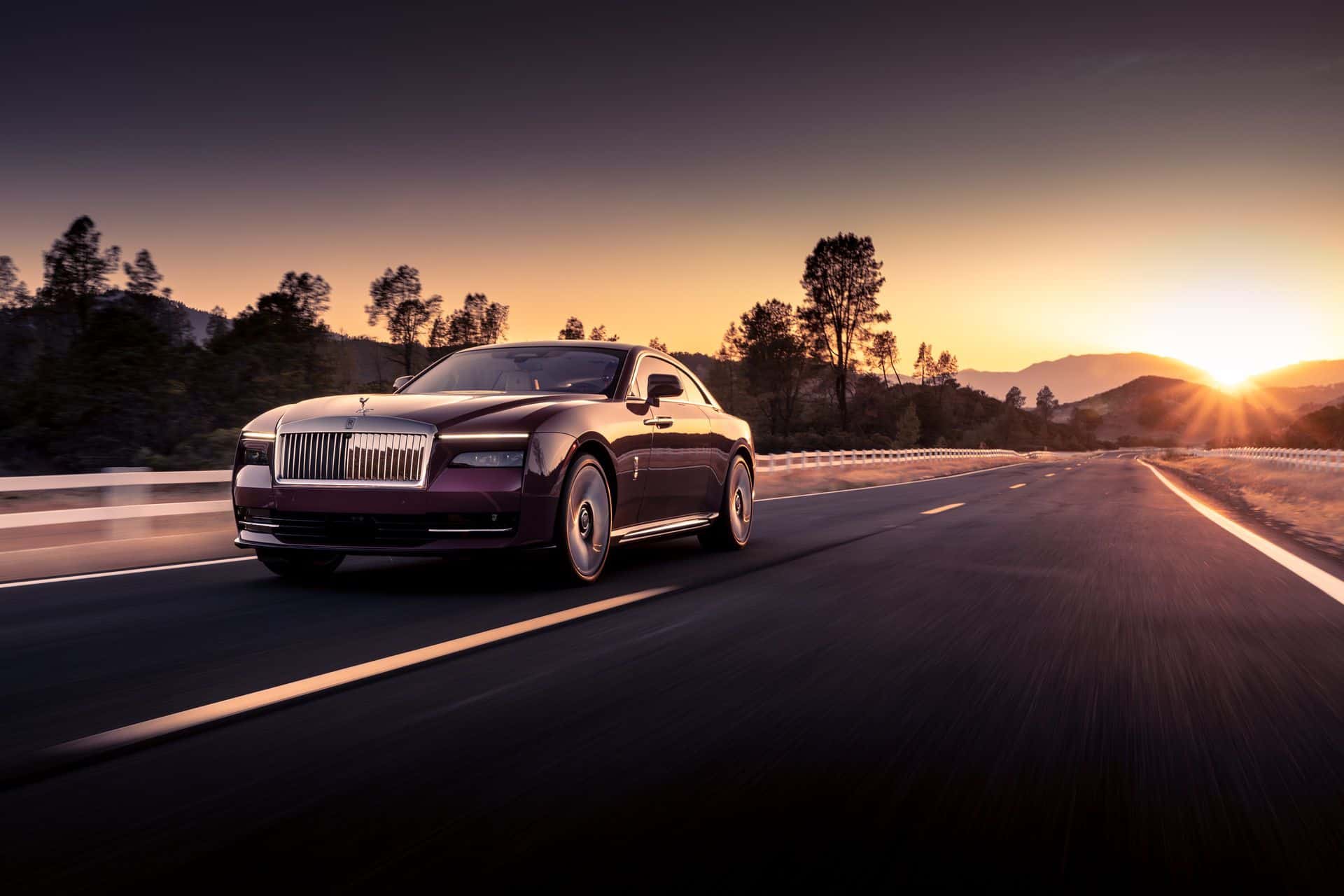
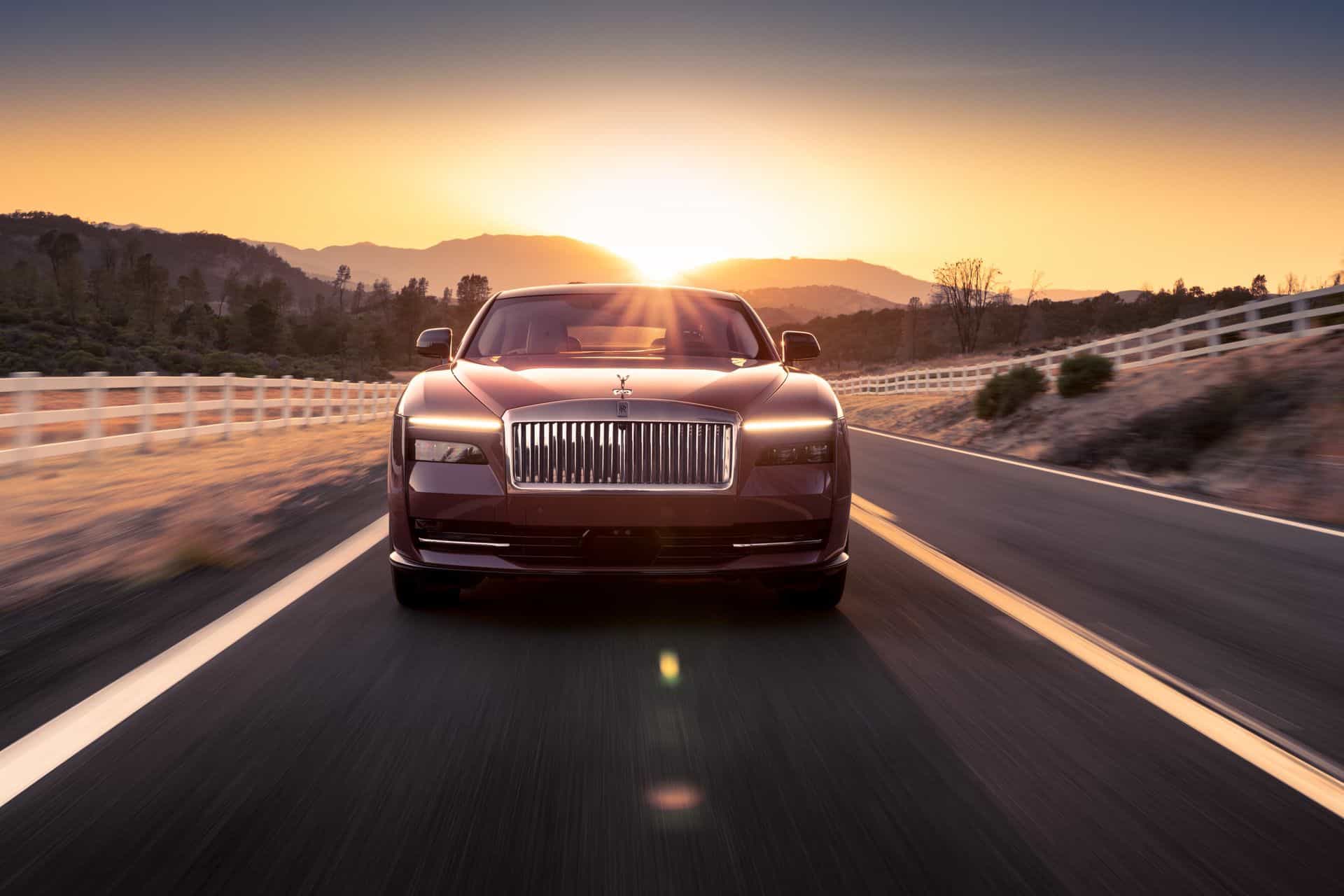
ROLLS-ROYCE Spectre Twilight Purple & Silver
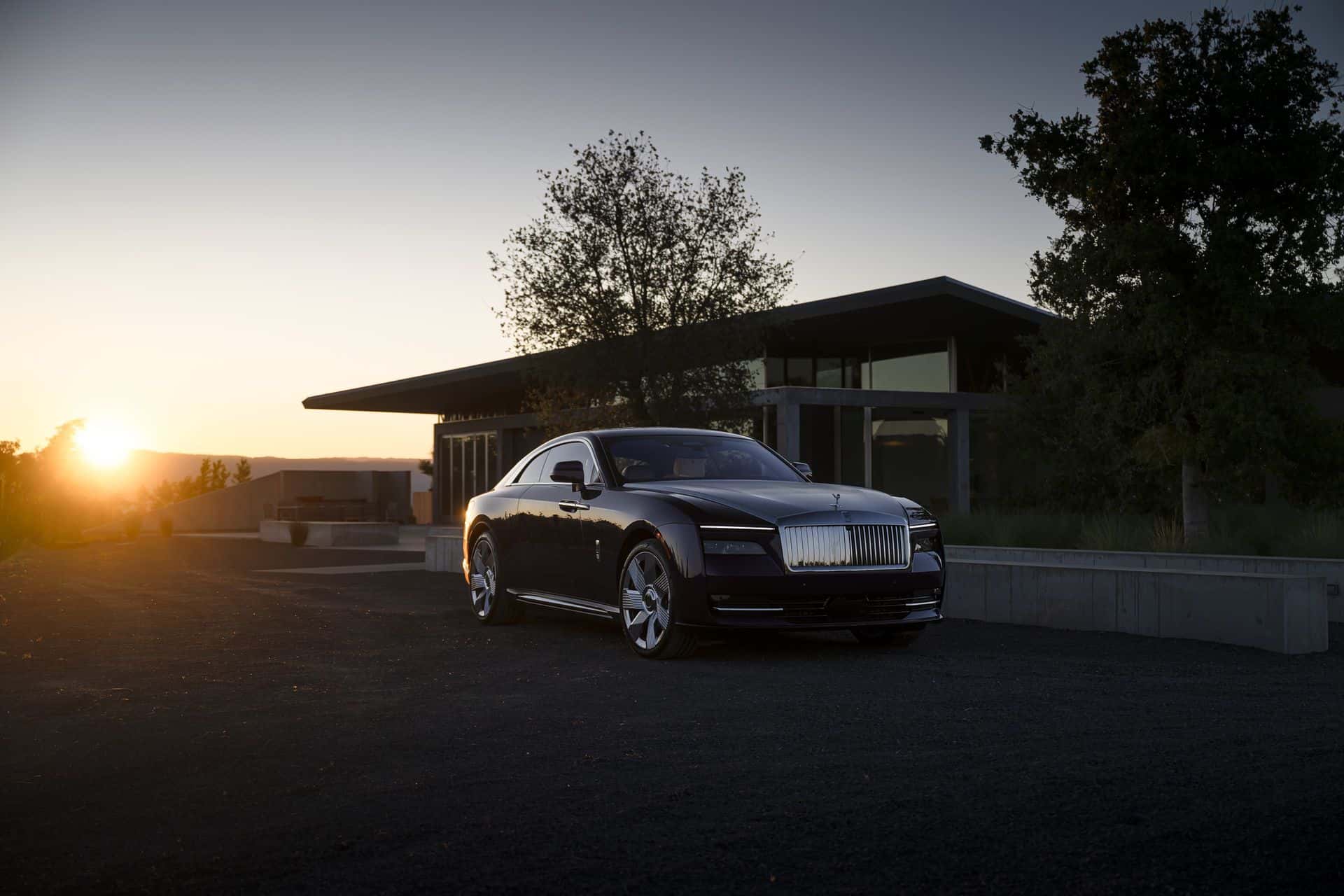
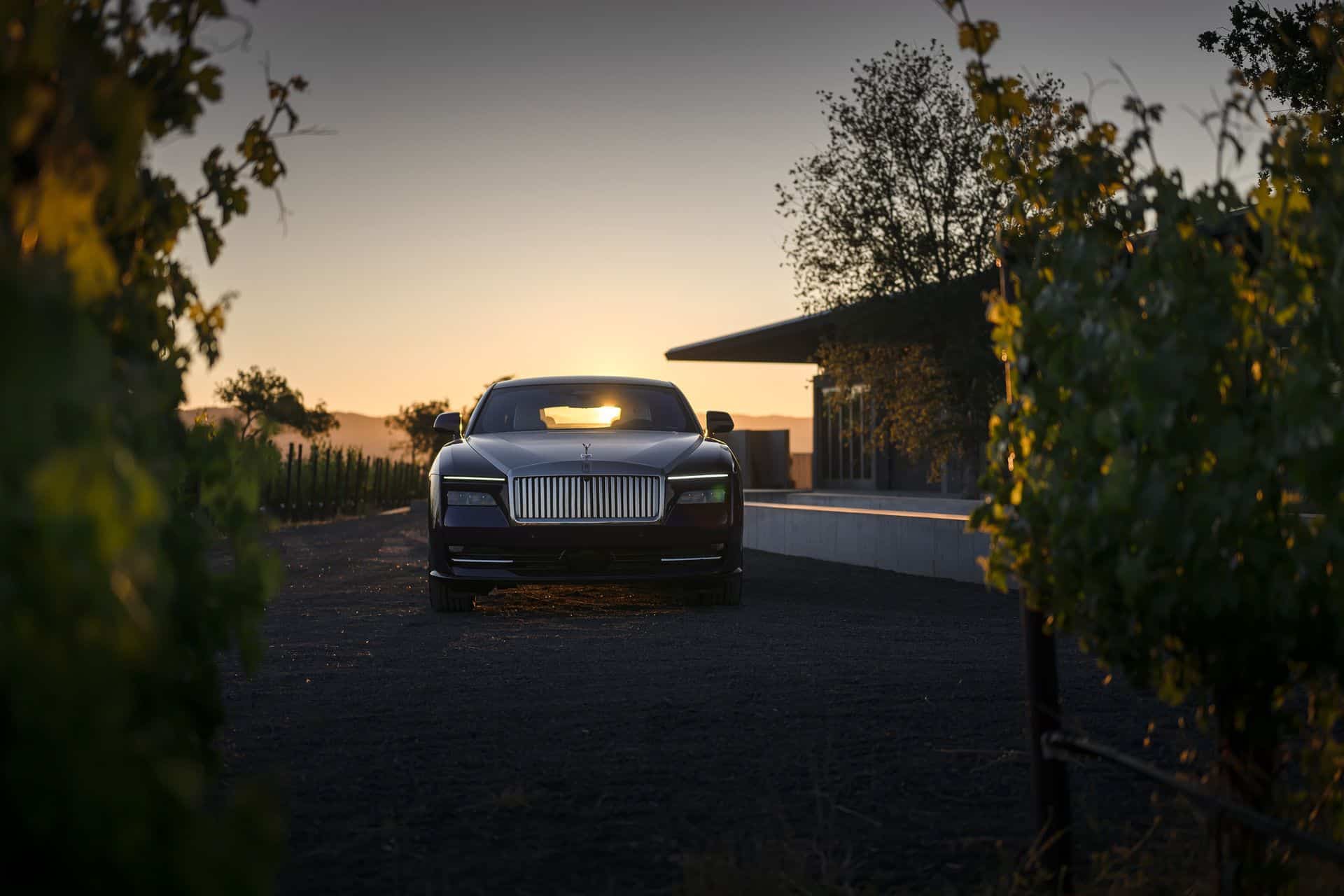
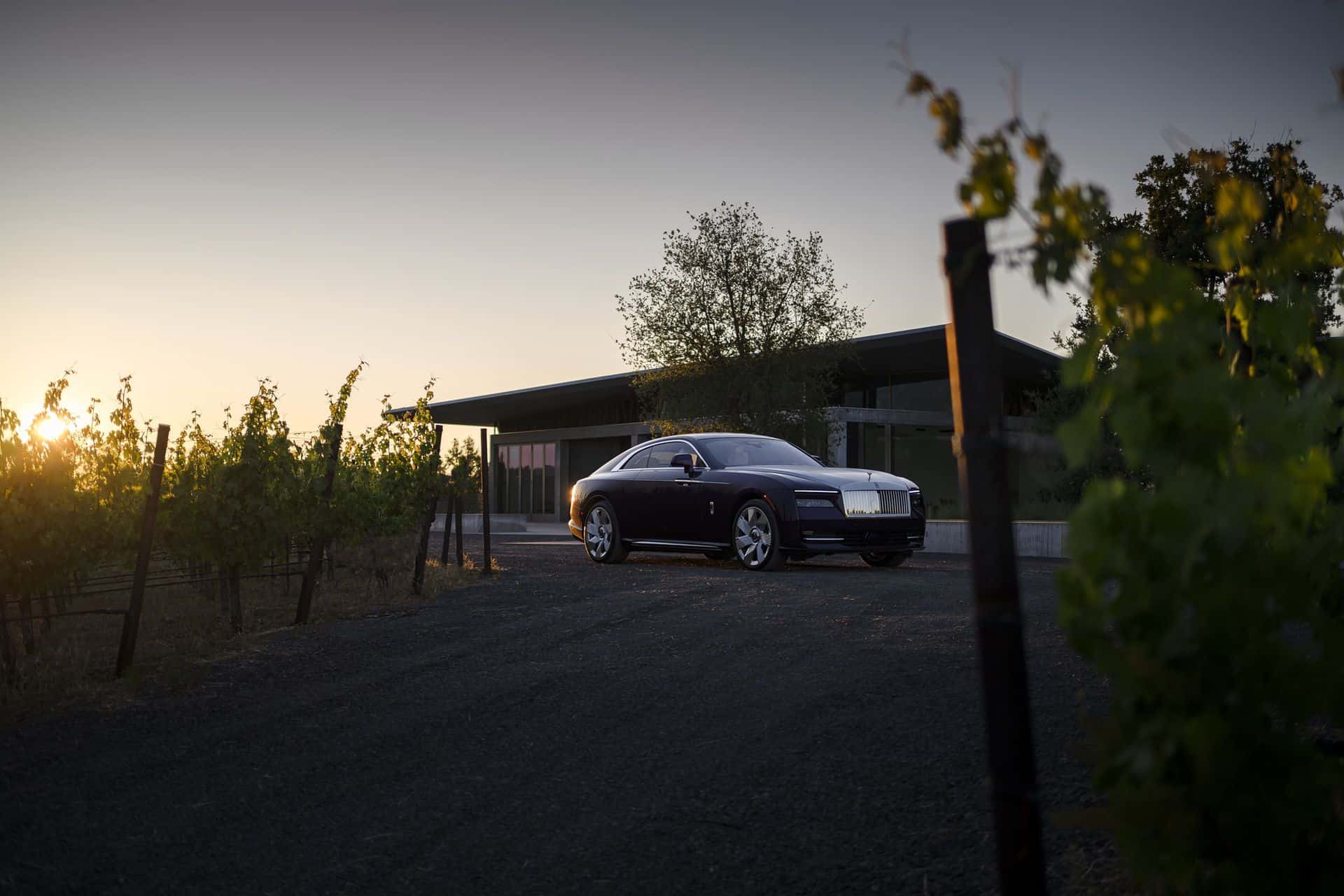
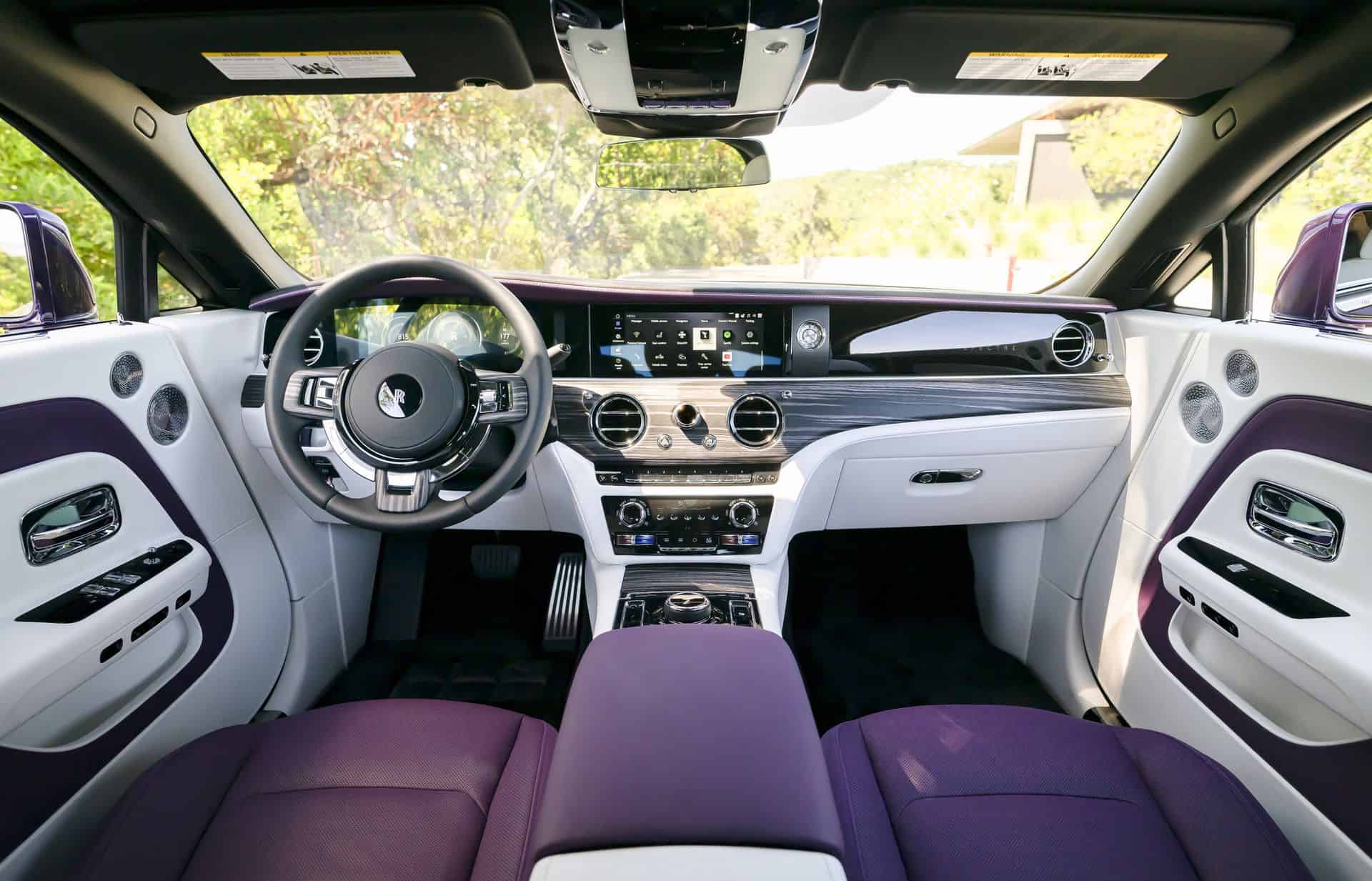
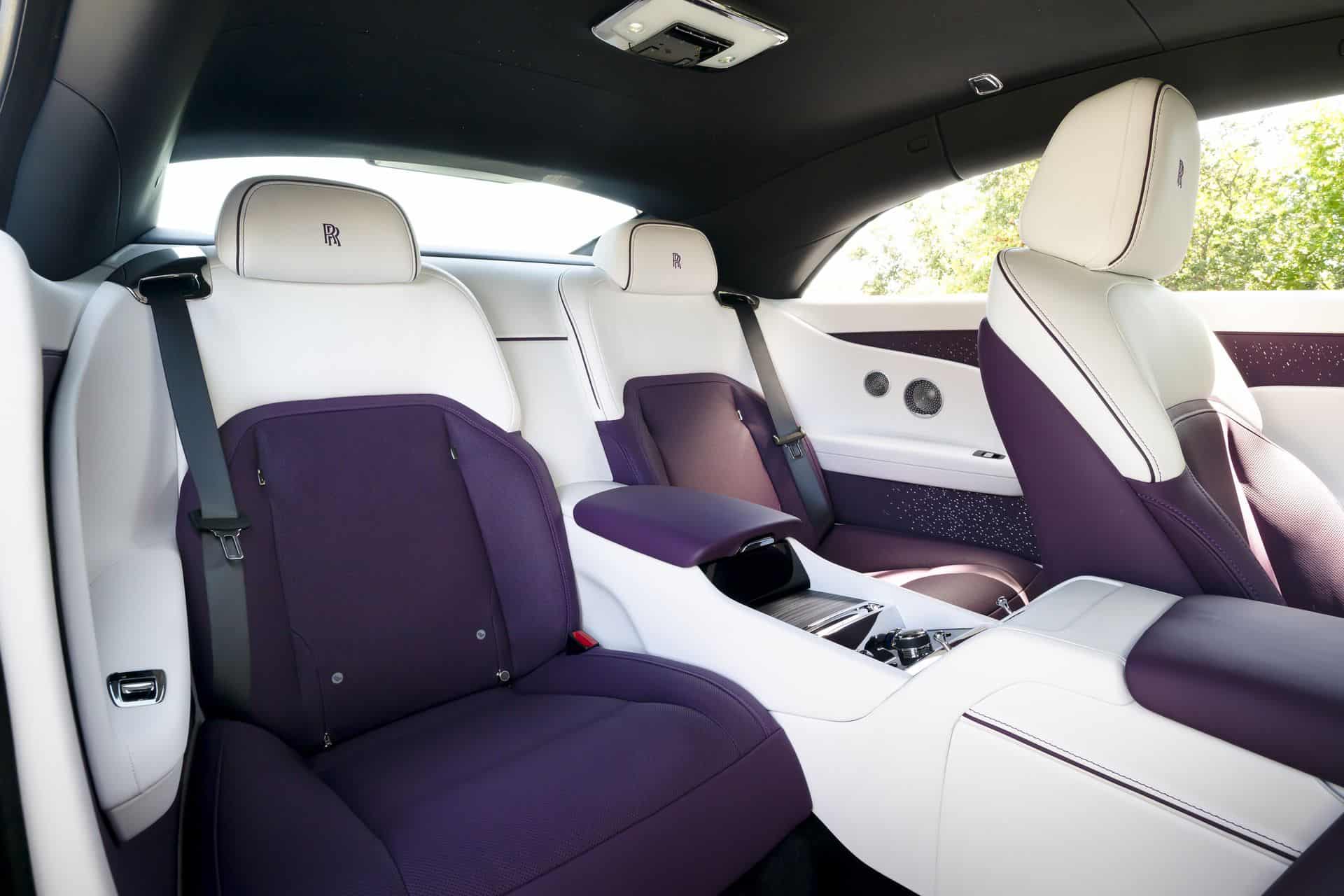
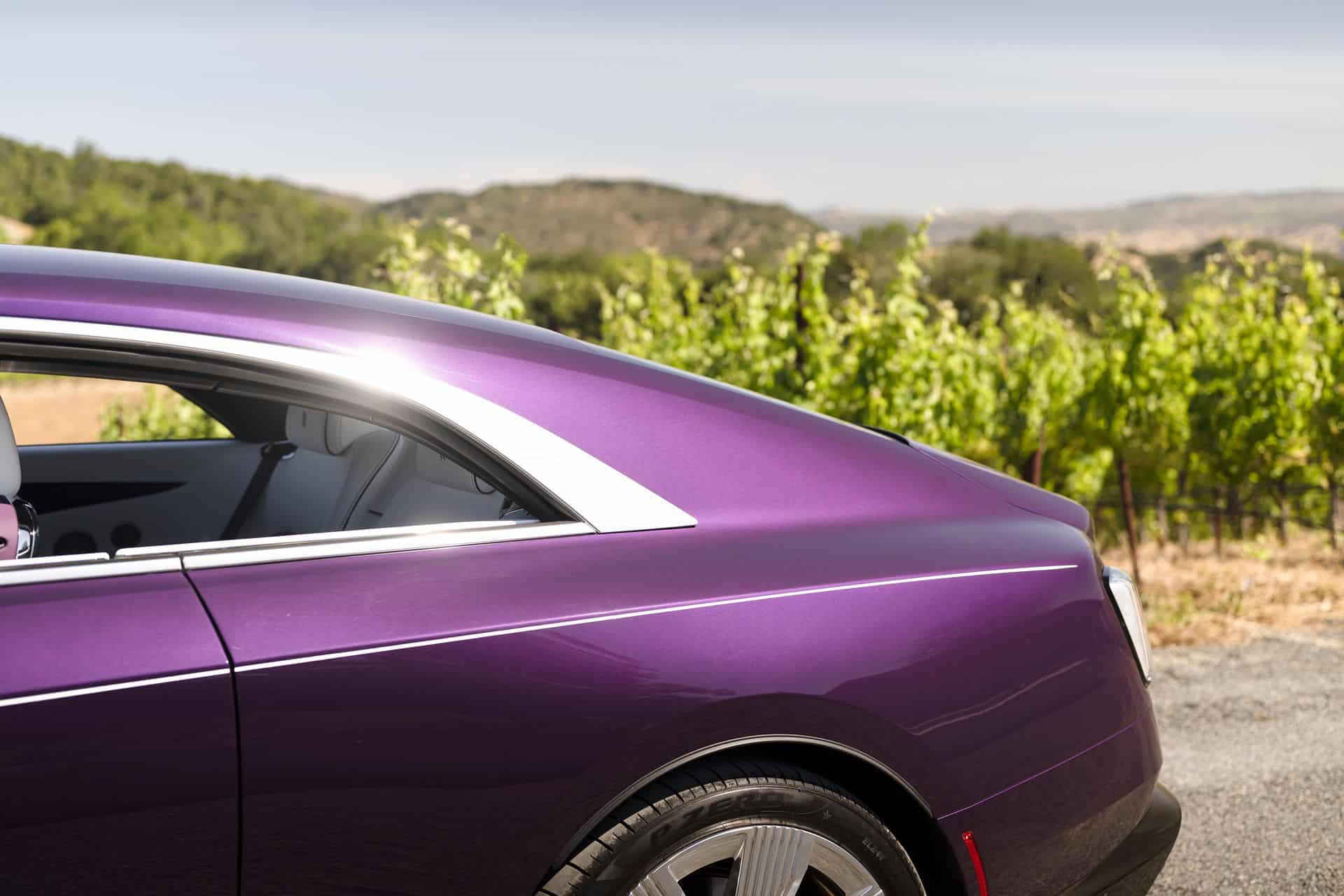
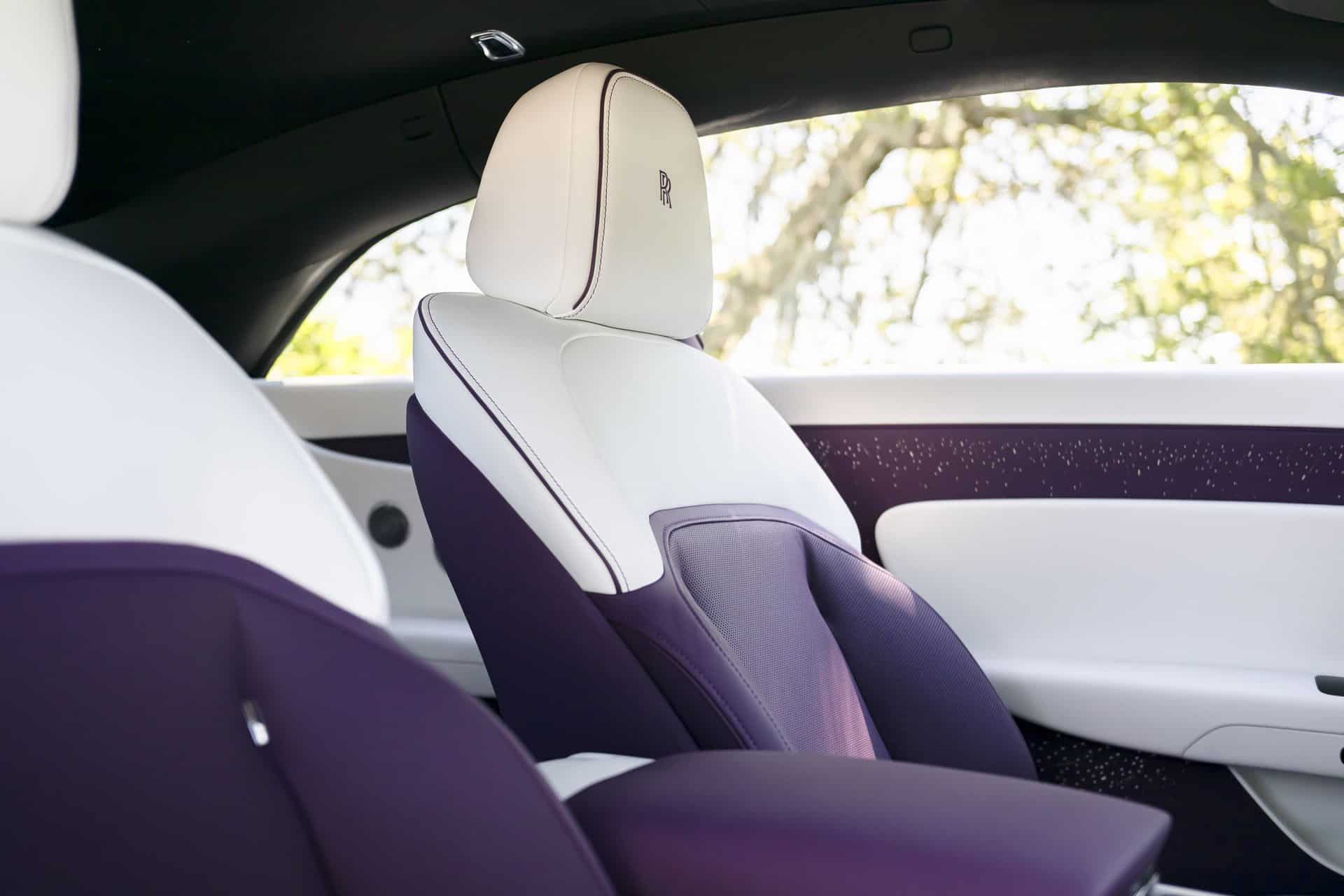
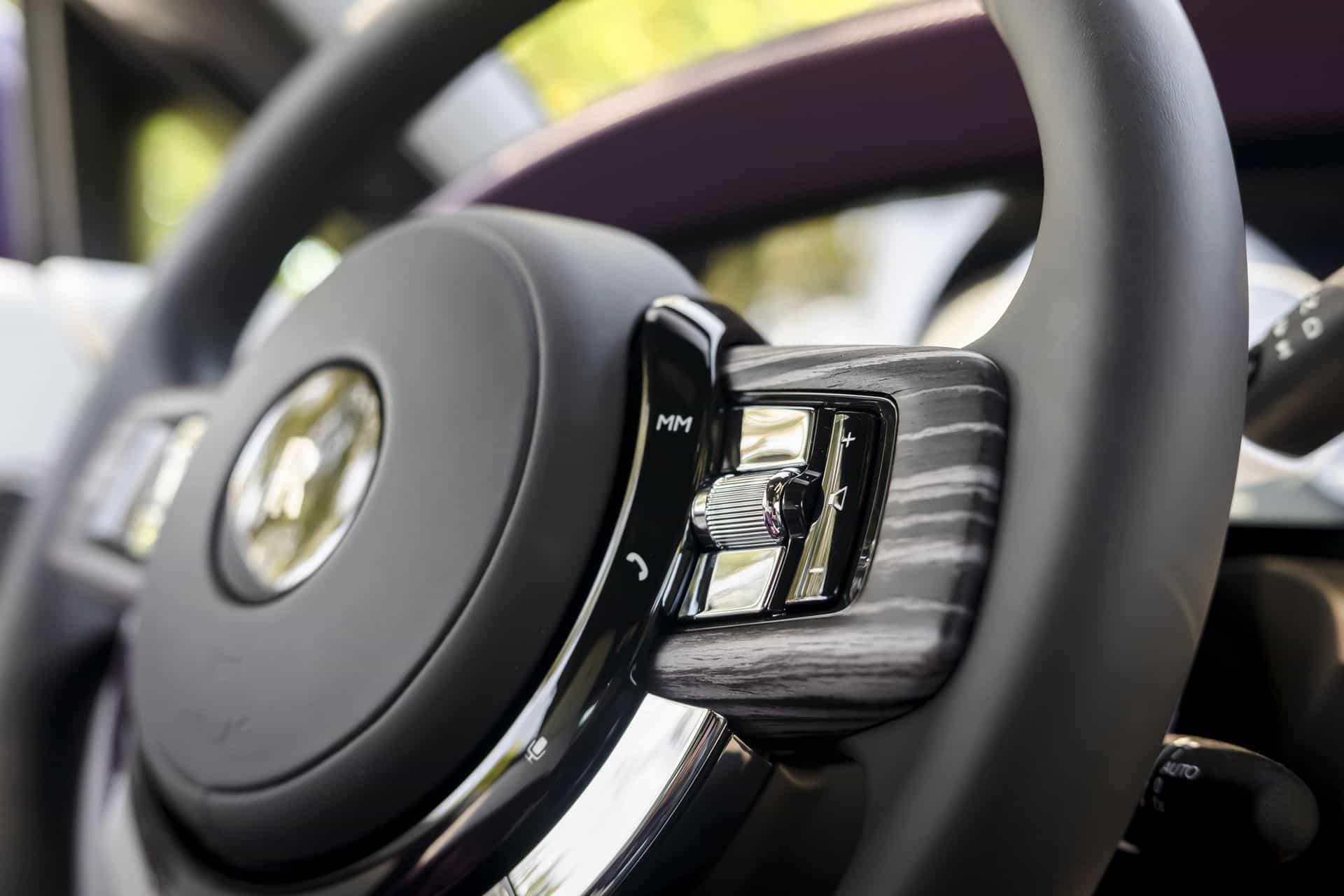

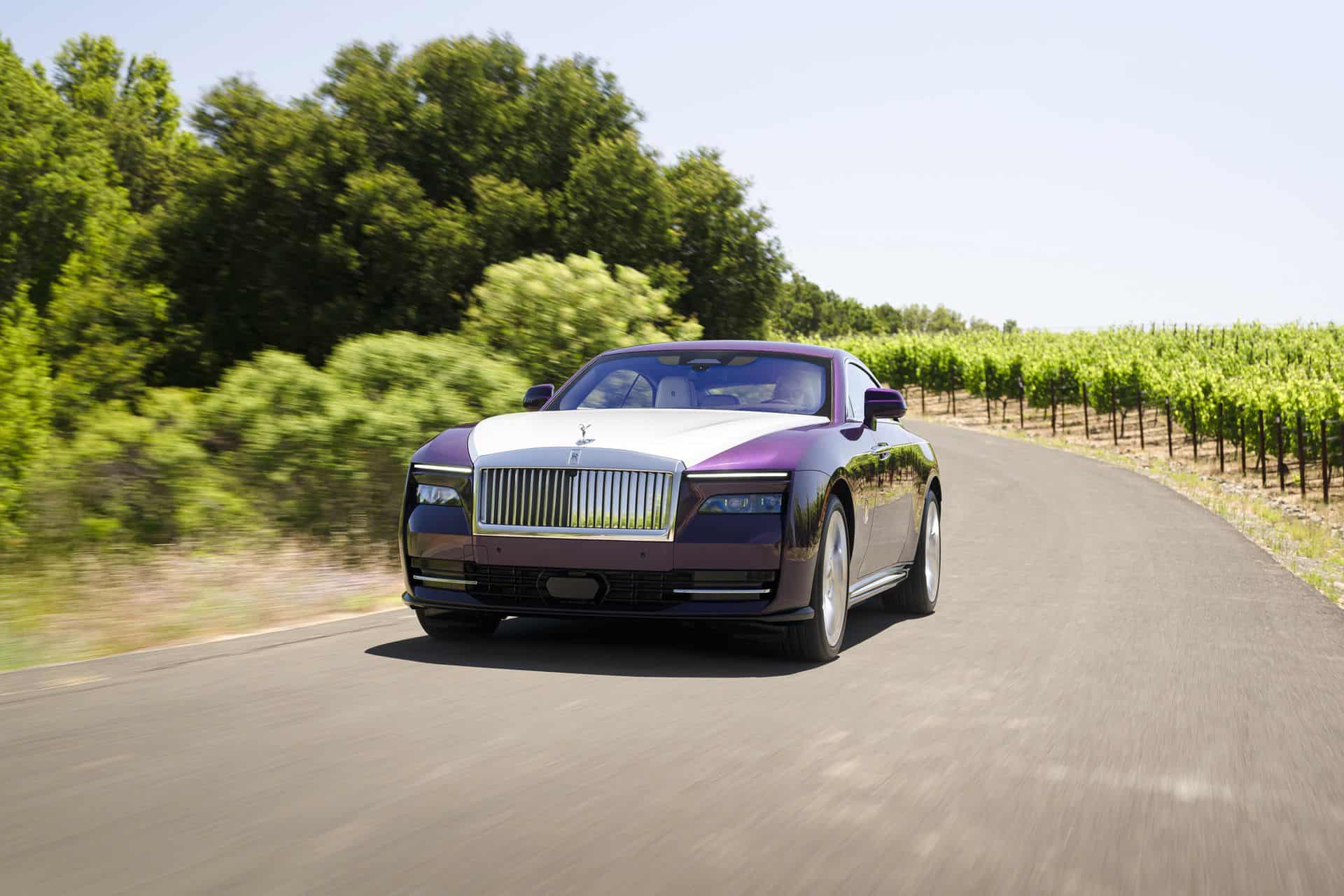
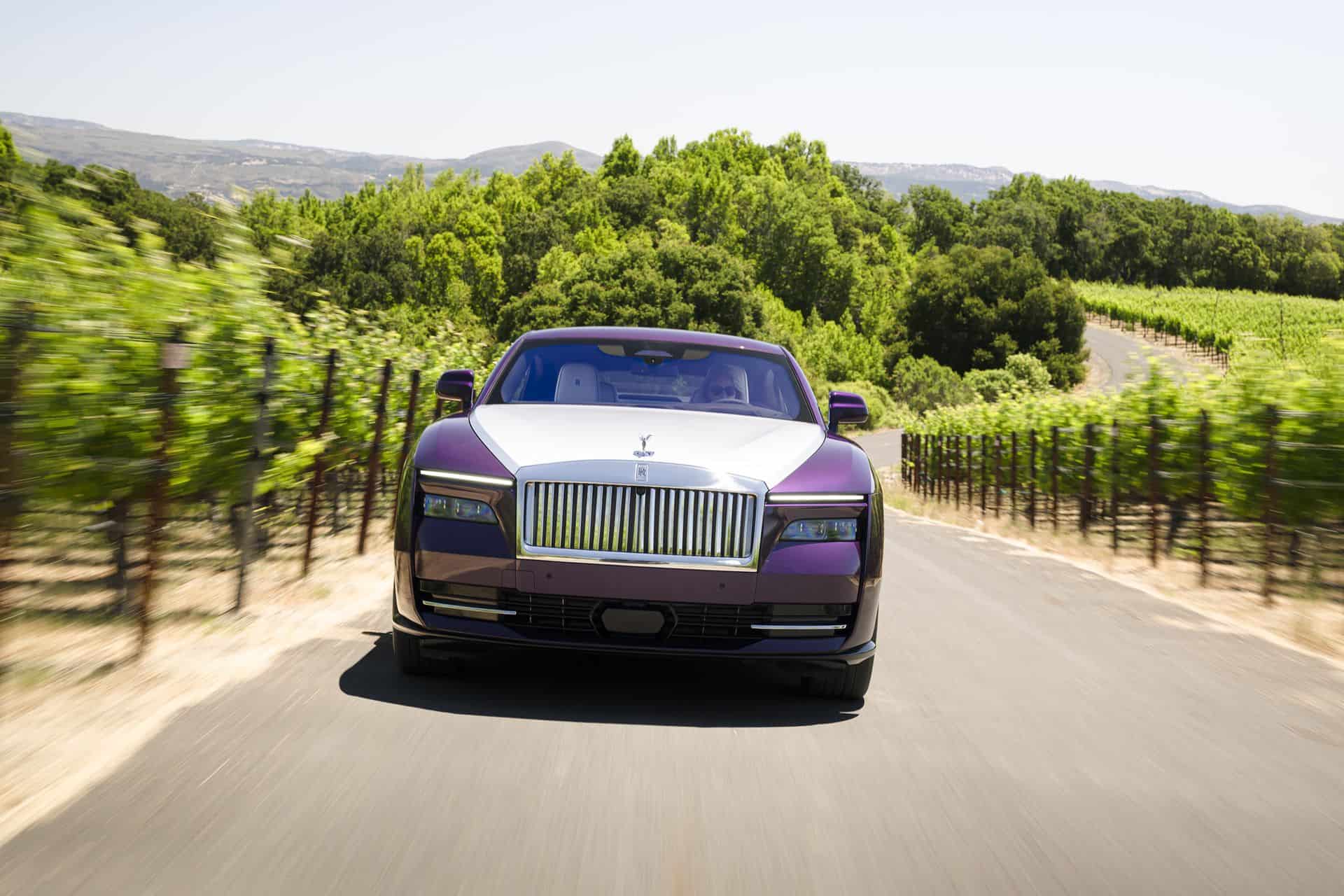
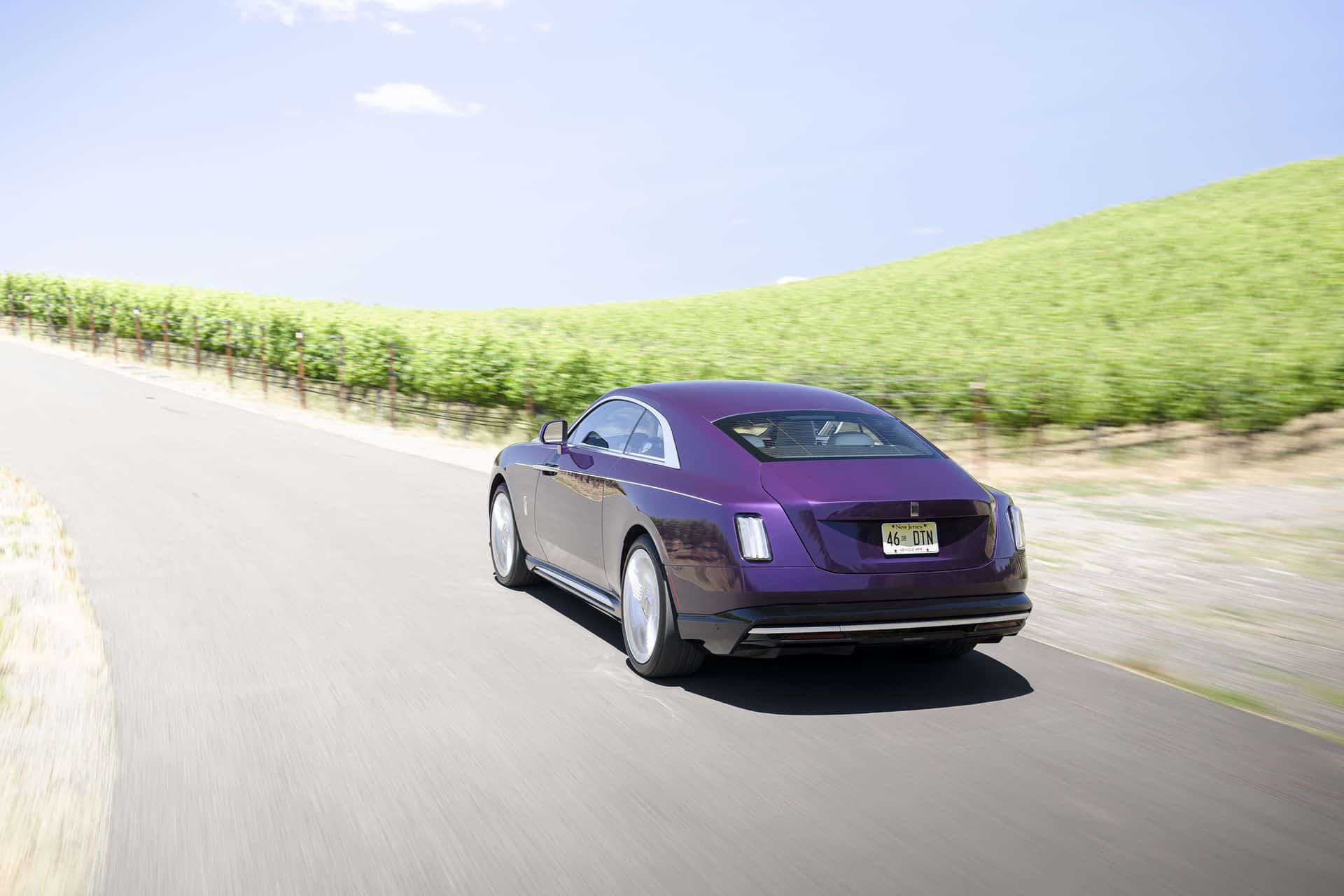
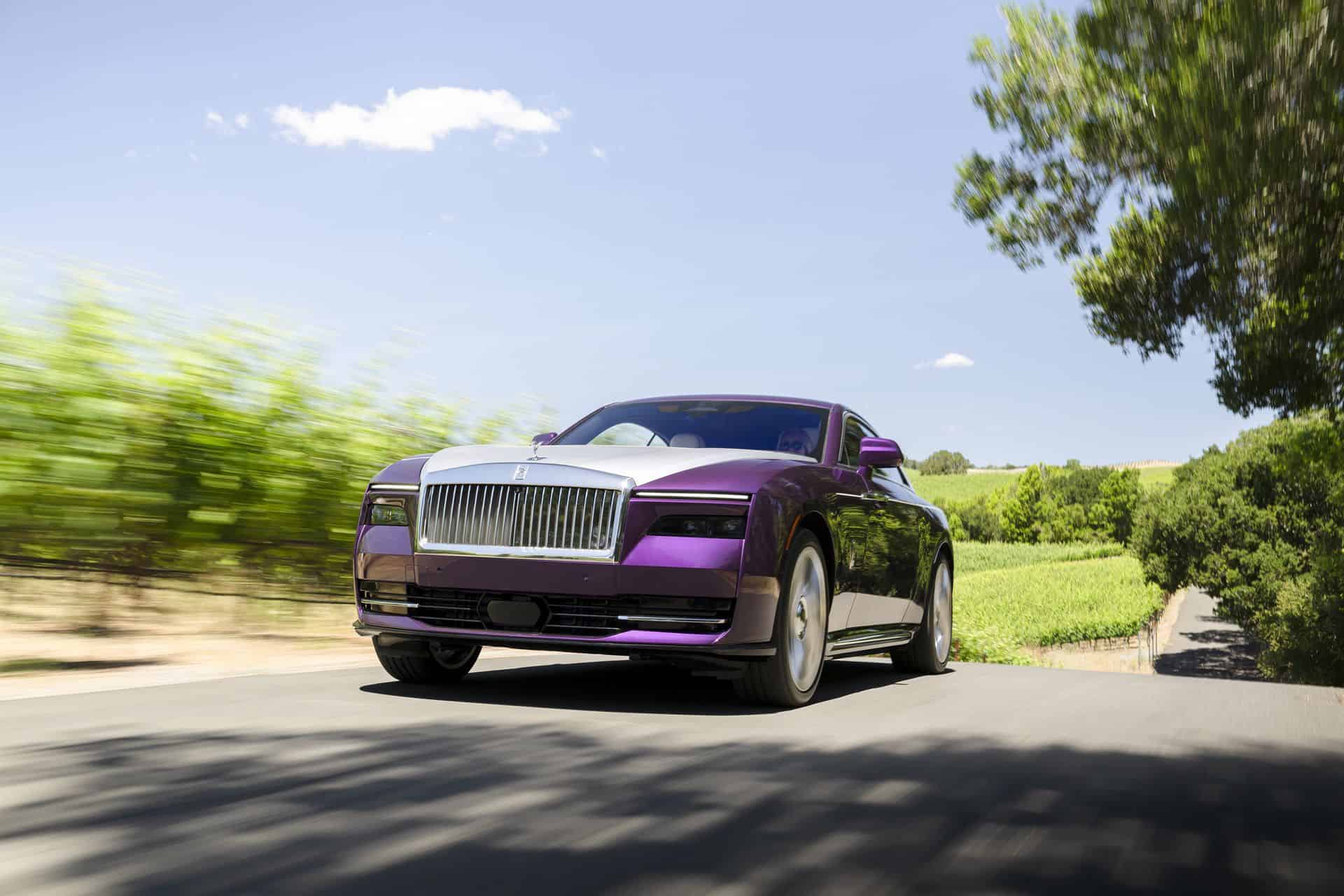
ROLLS-ROYCE Spectre Imperial Jade & Black Diamon
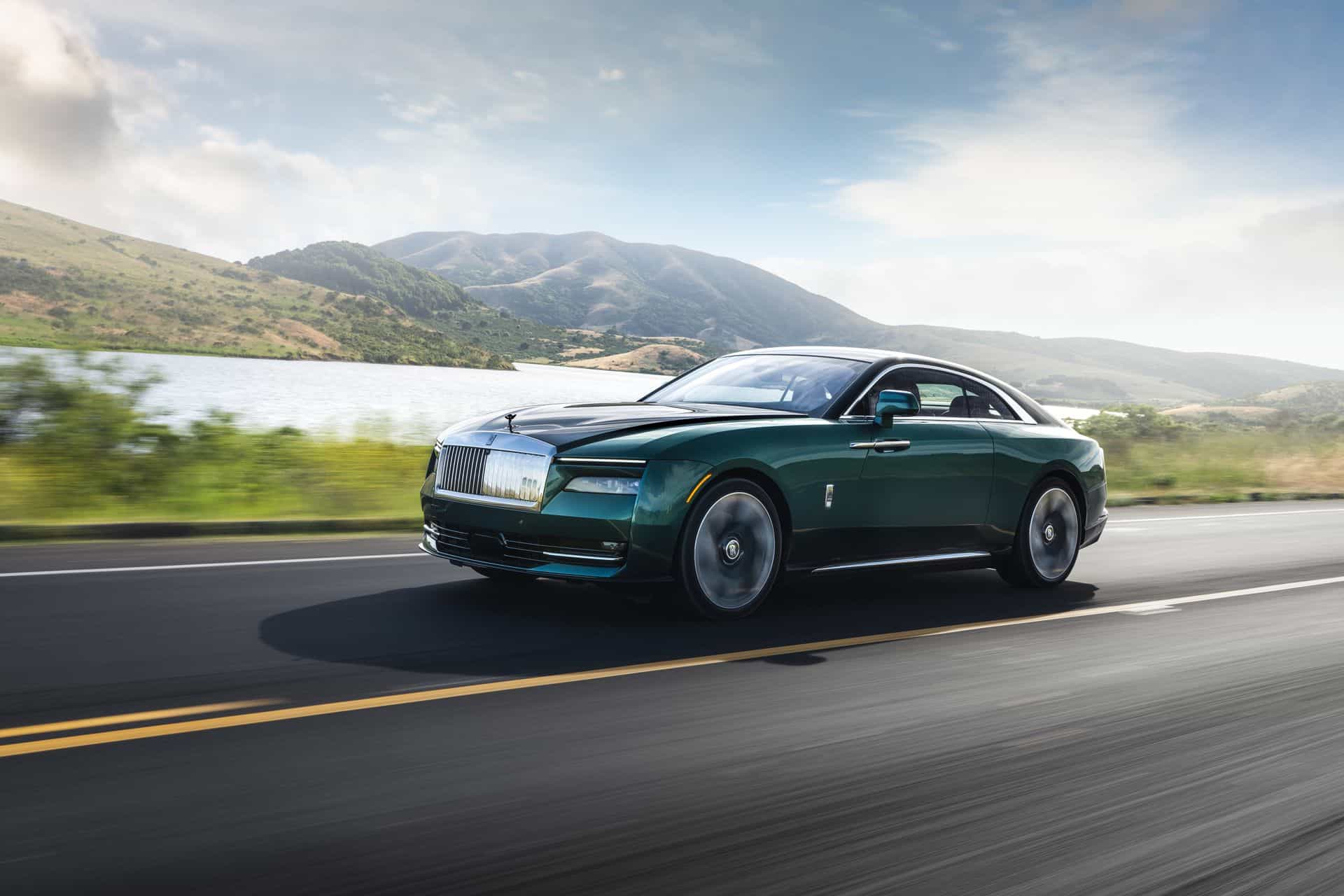
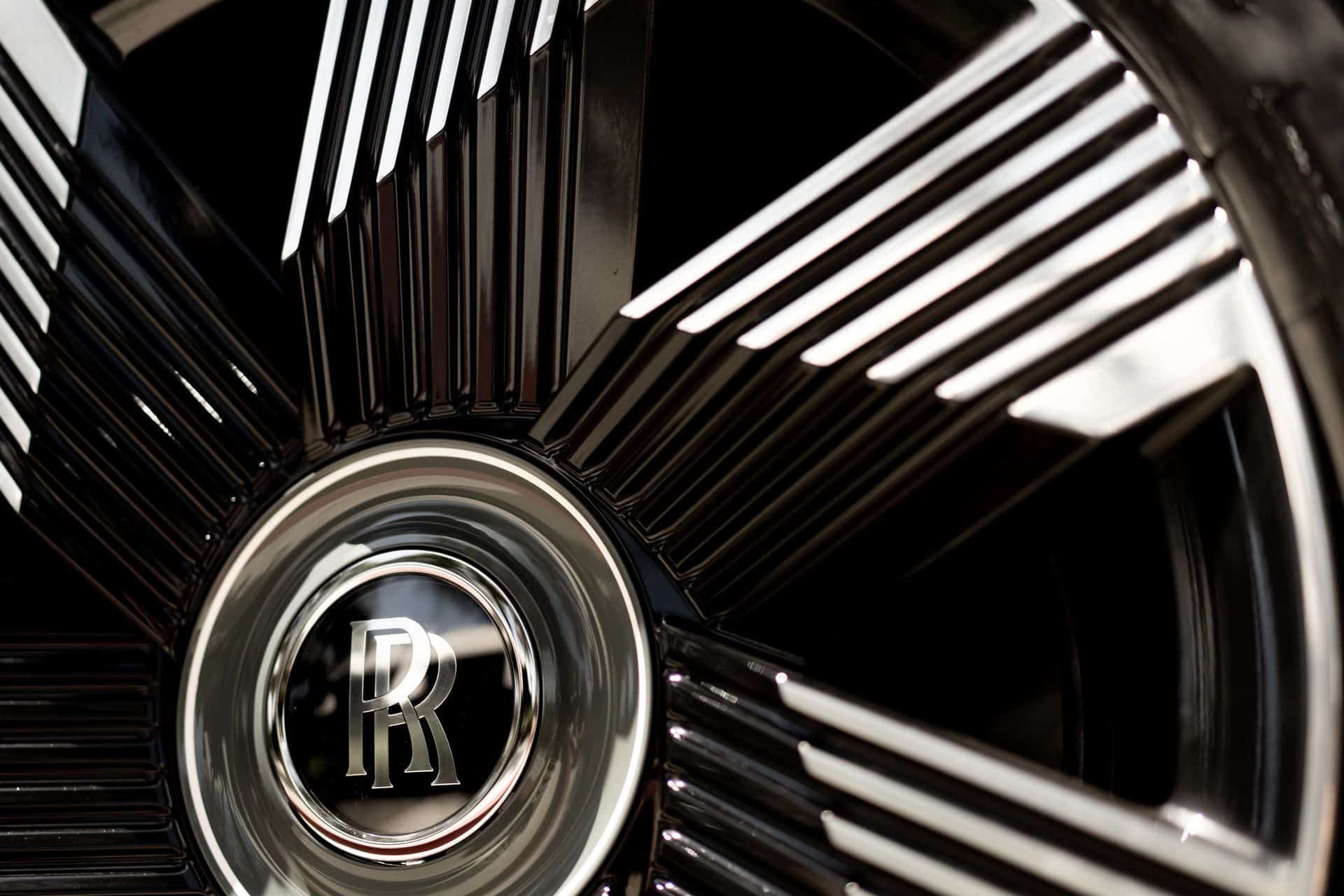
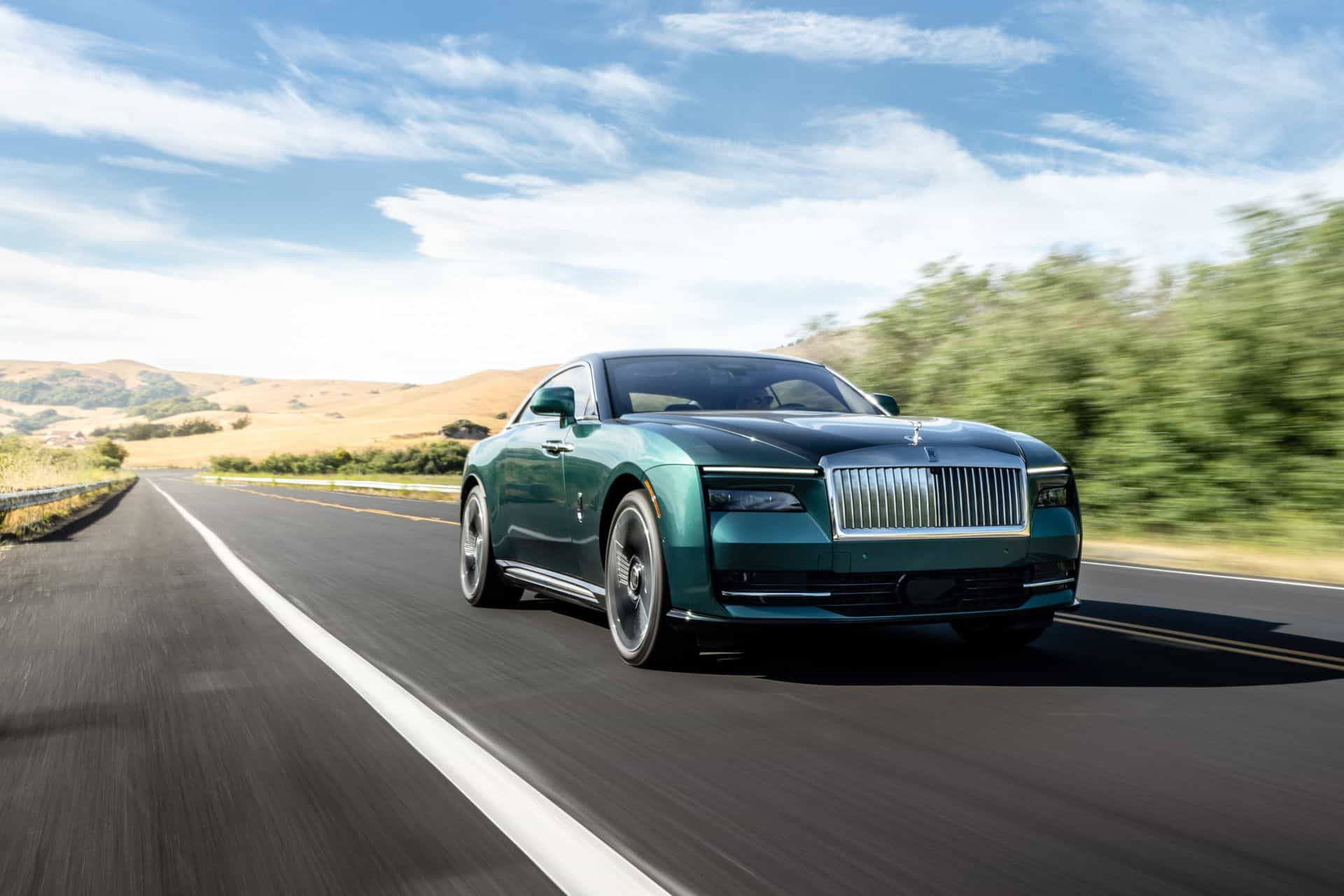
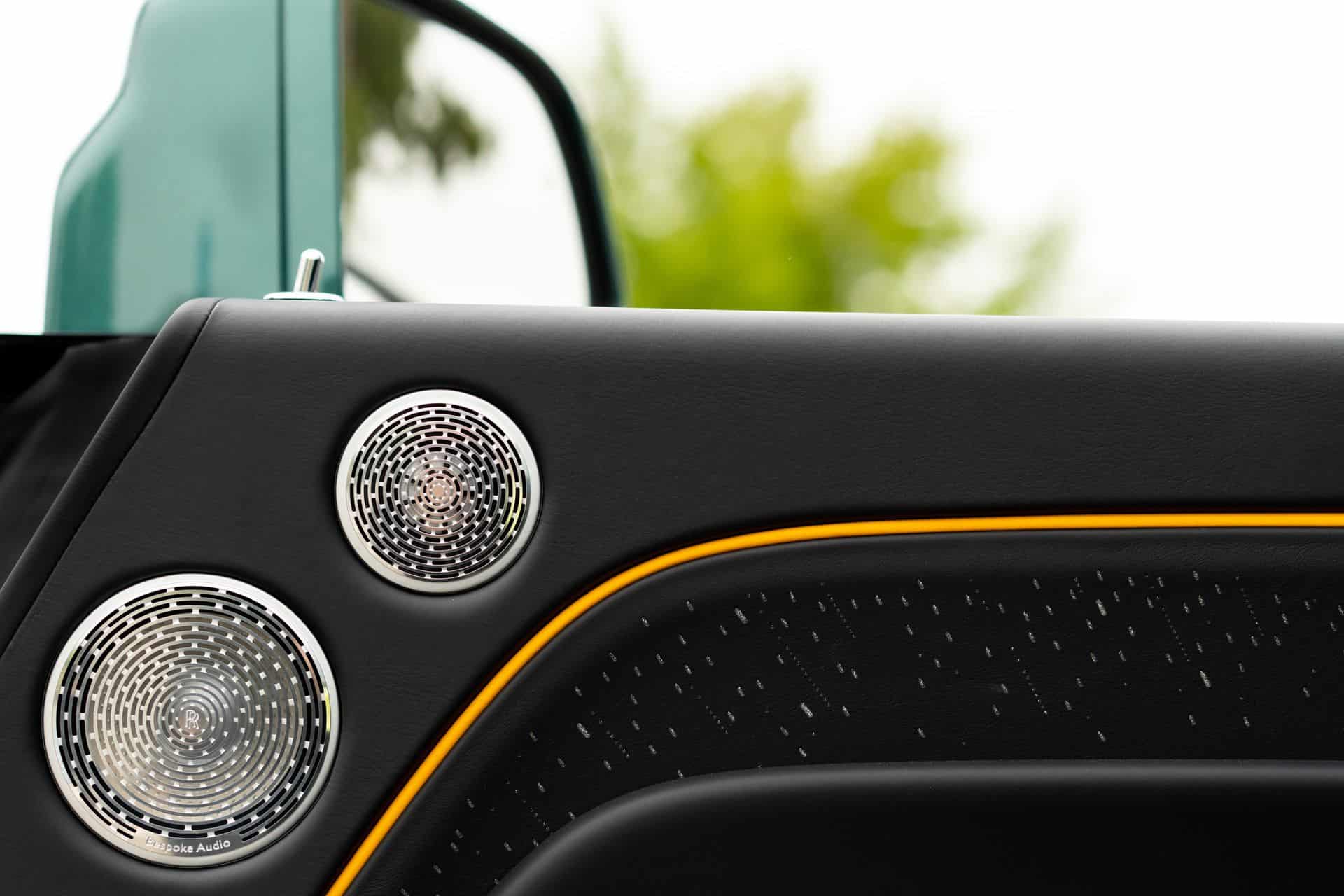
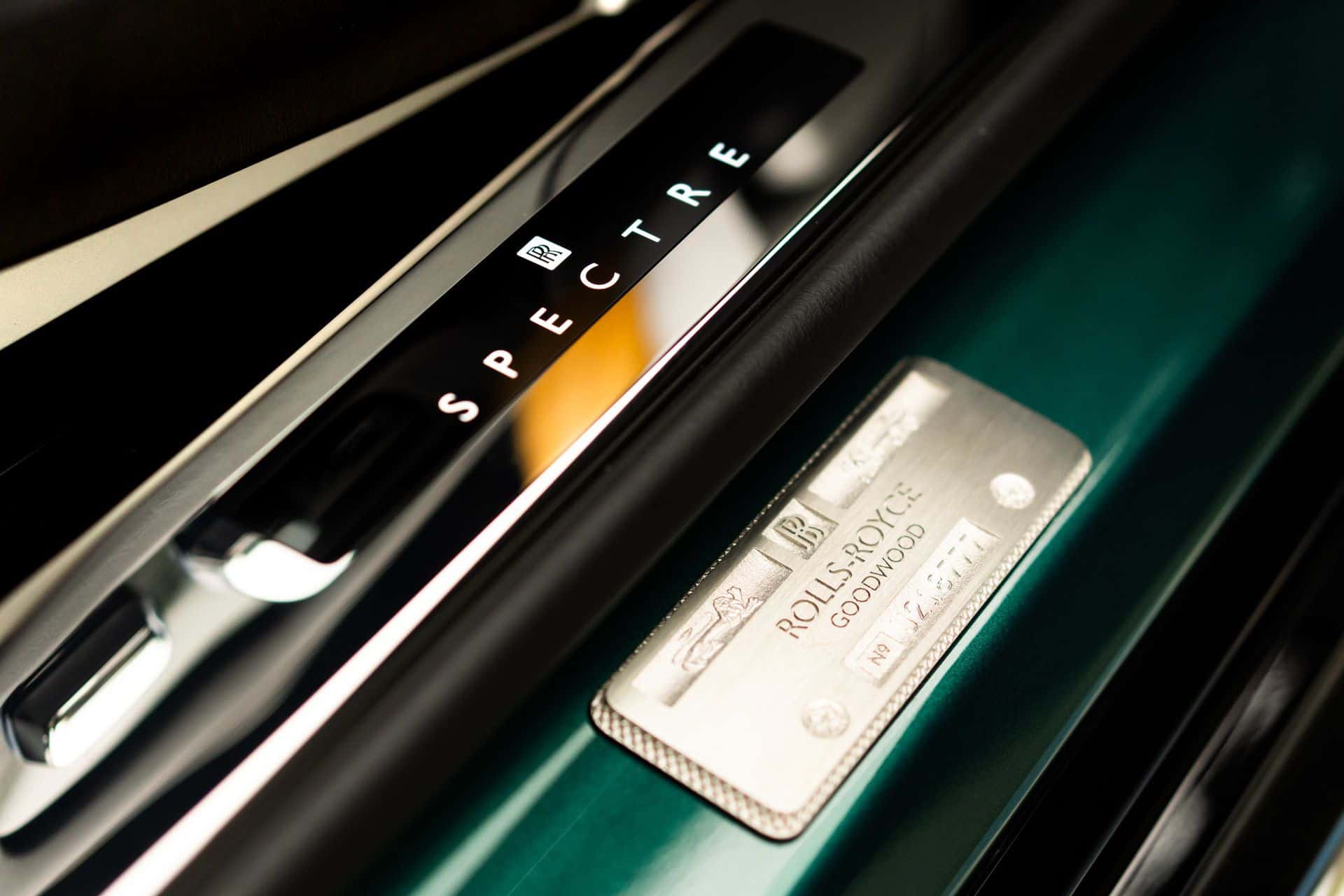
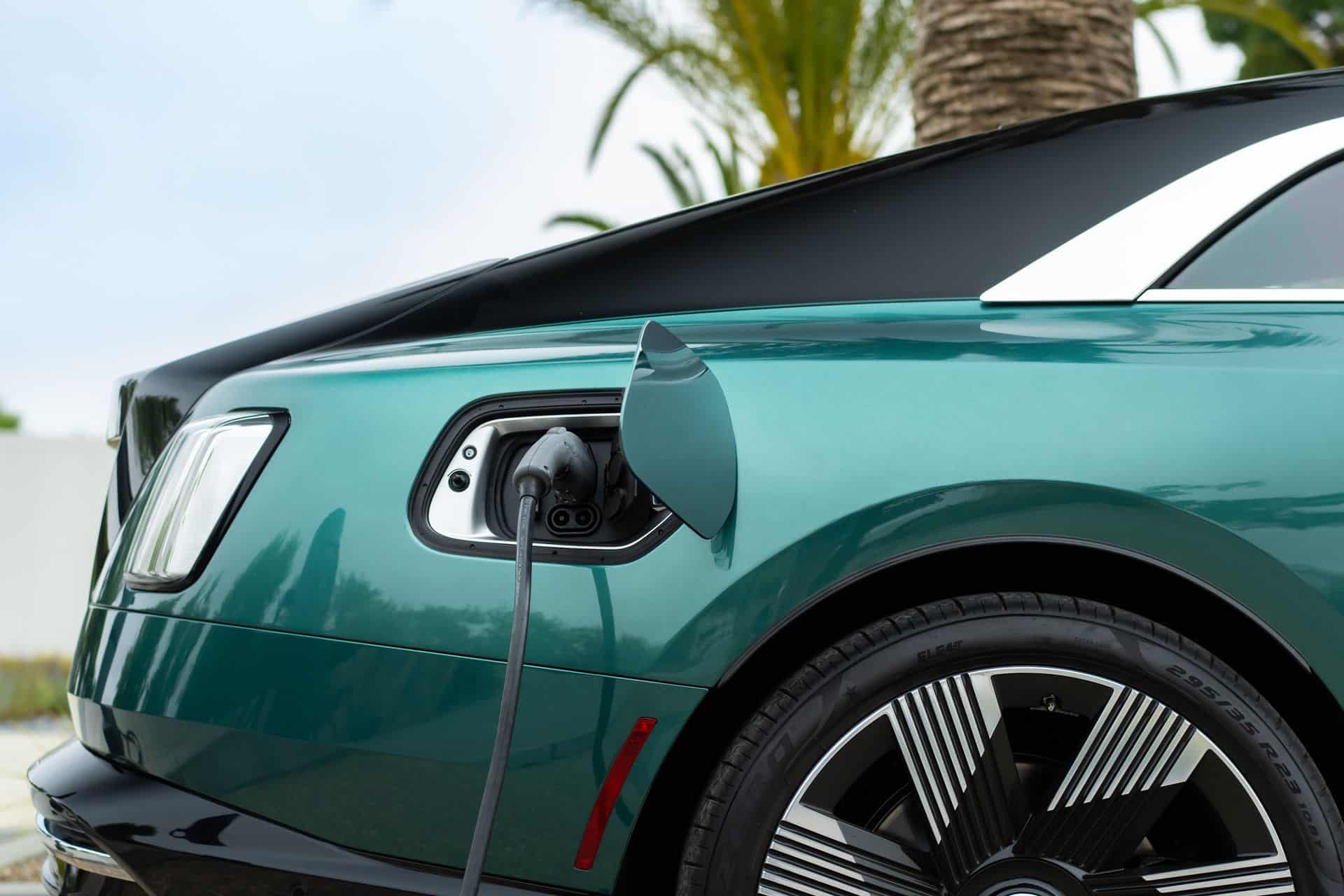
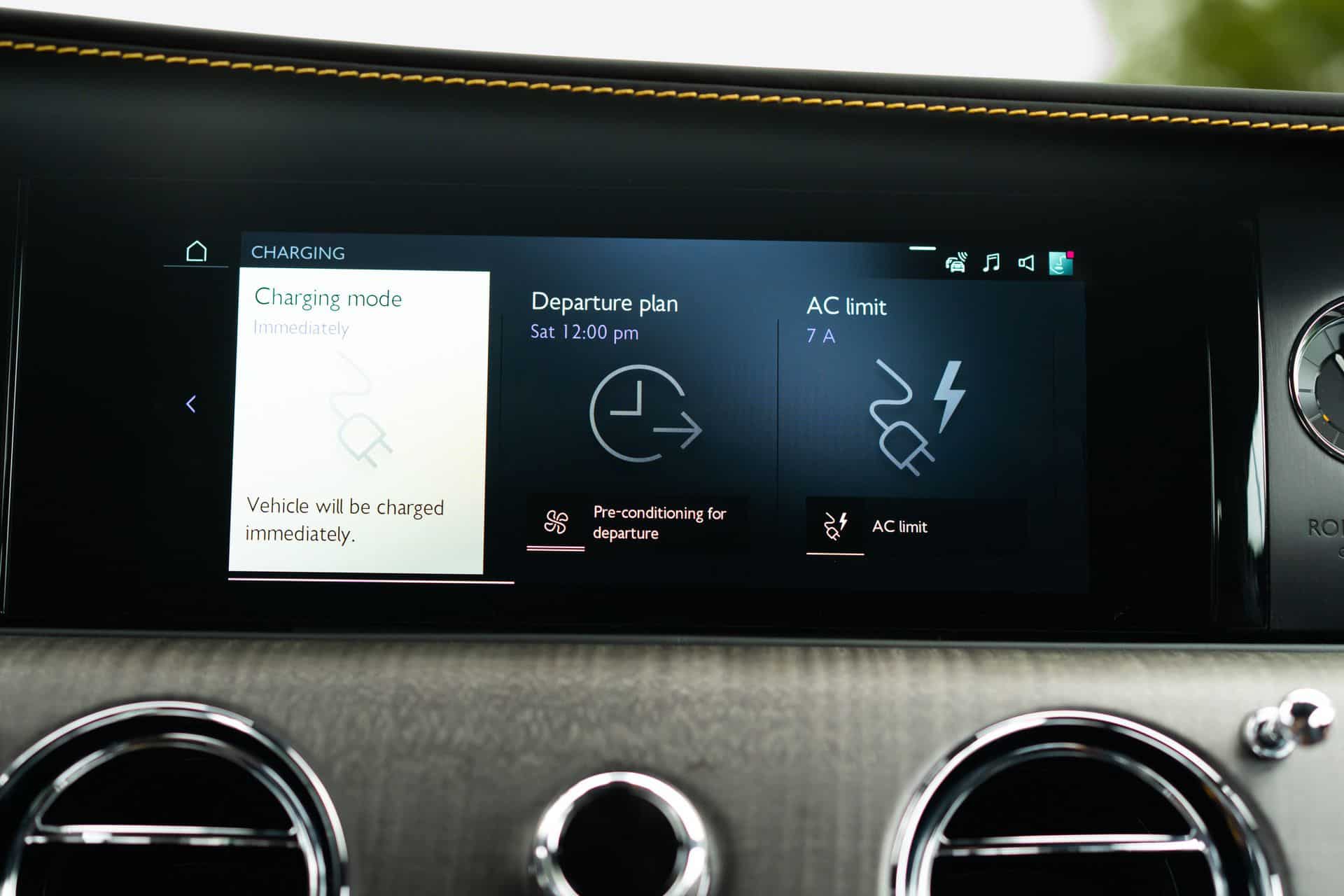
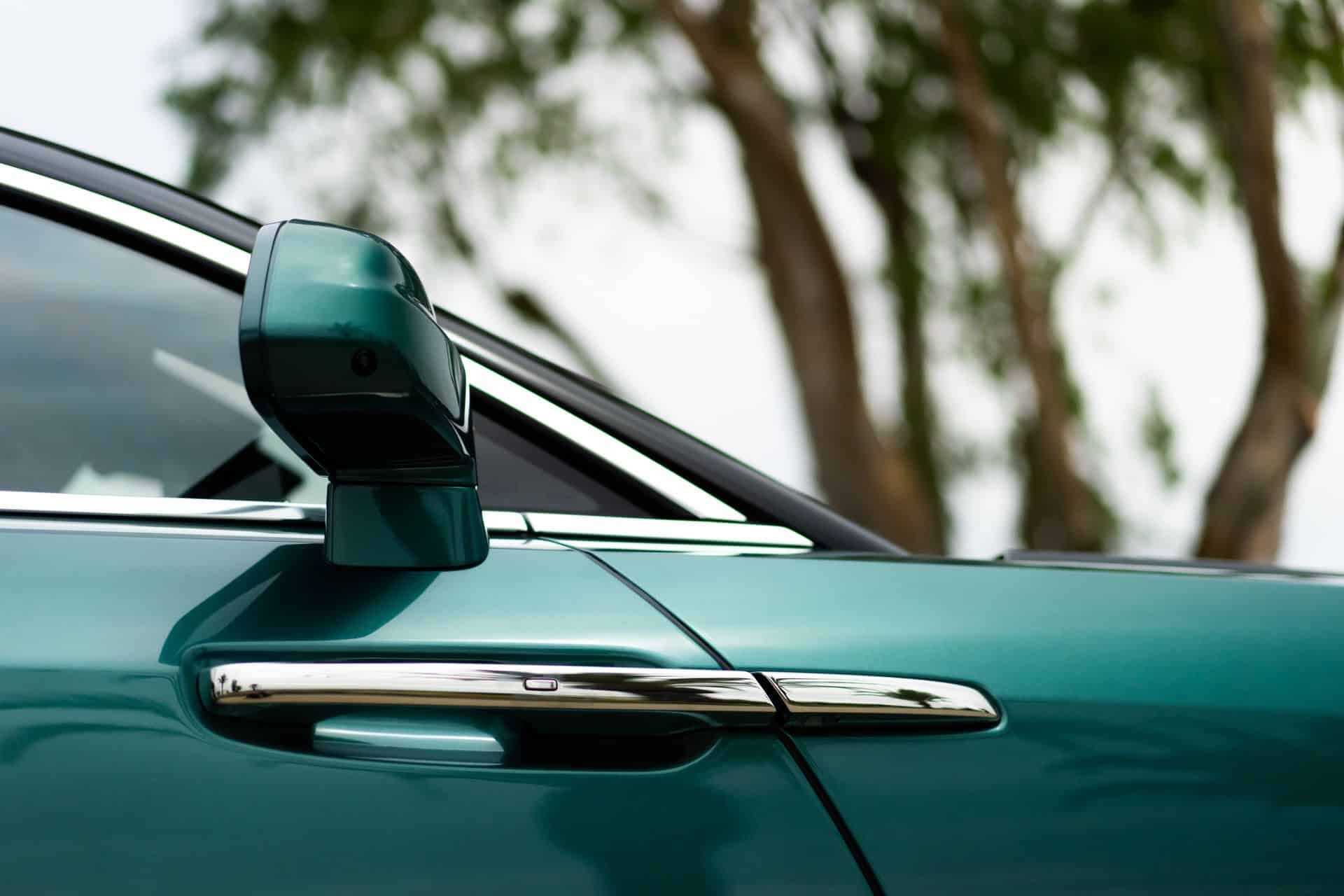
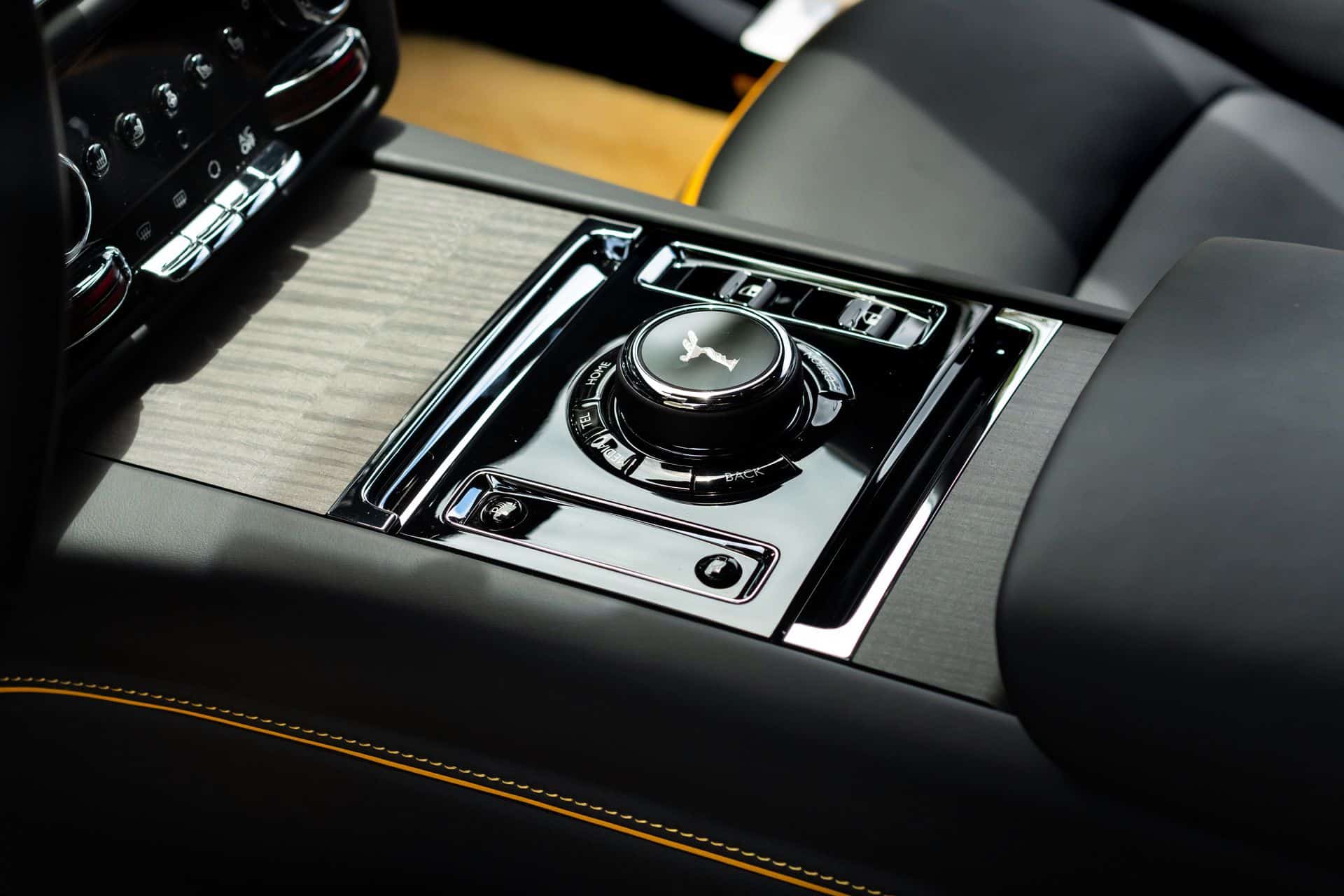
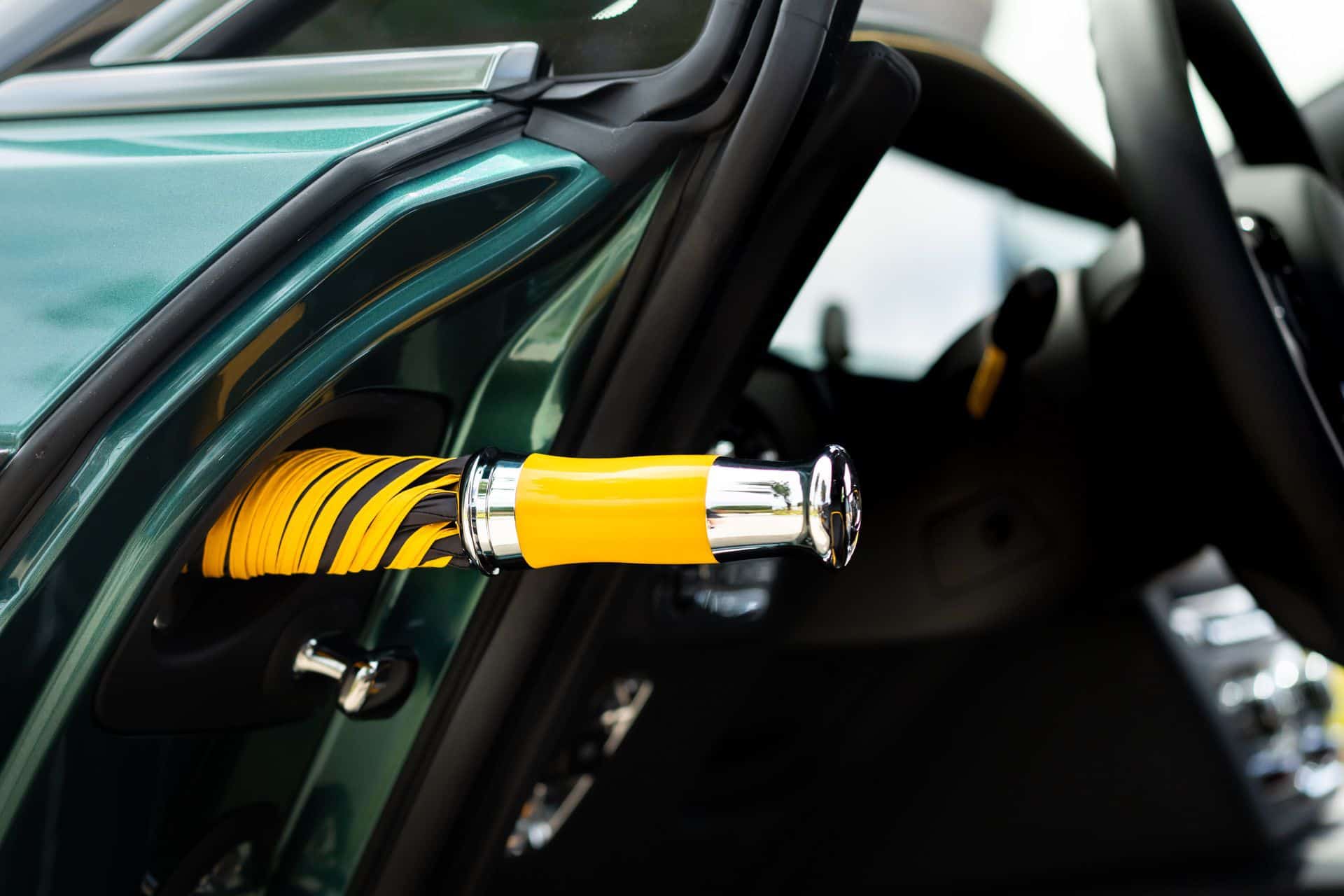
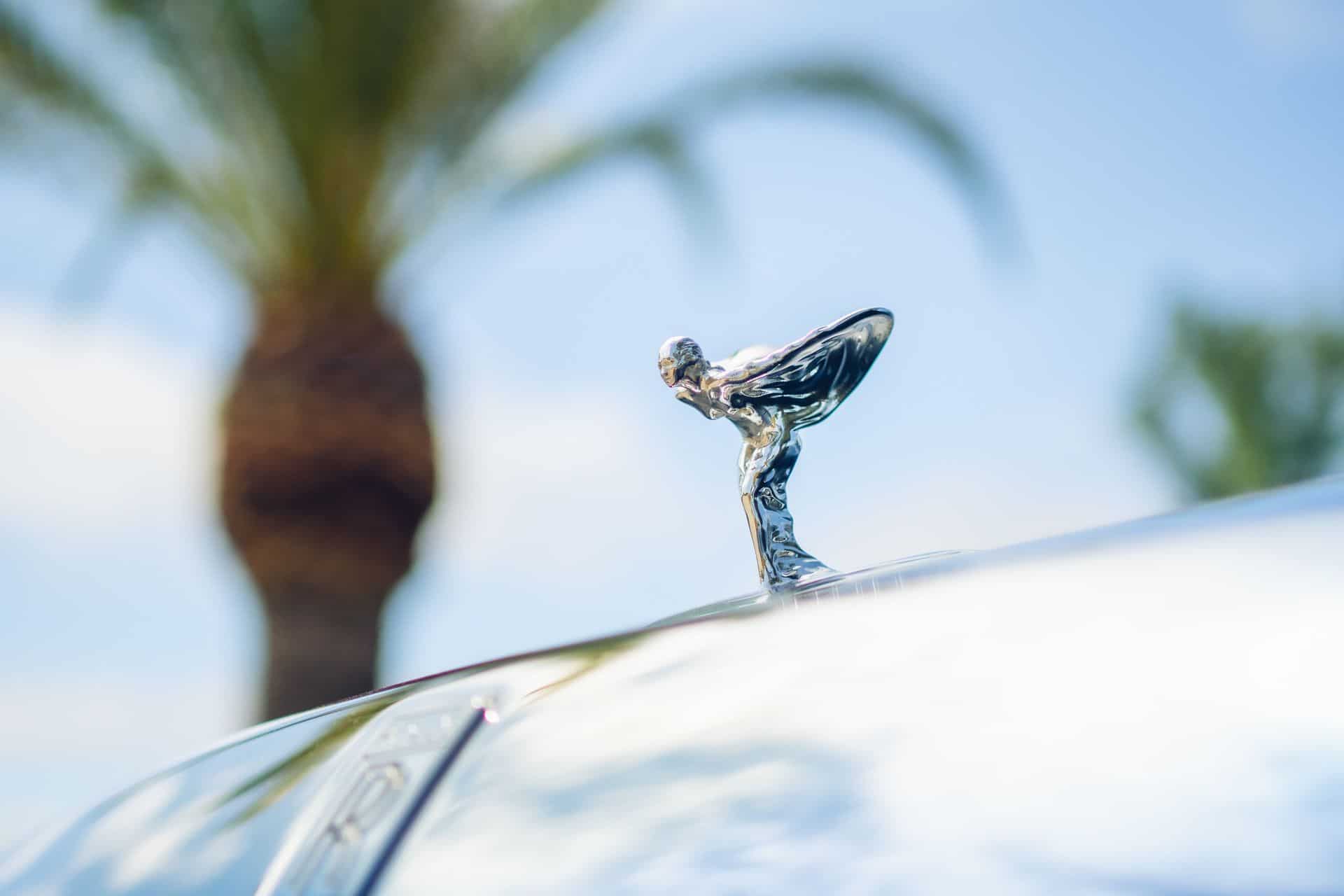
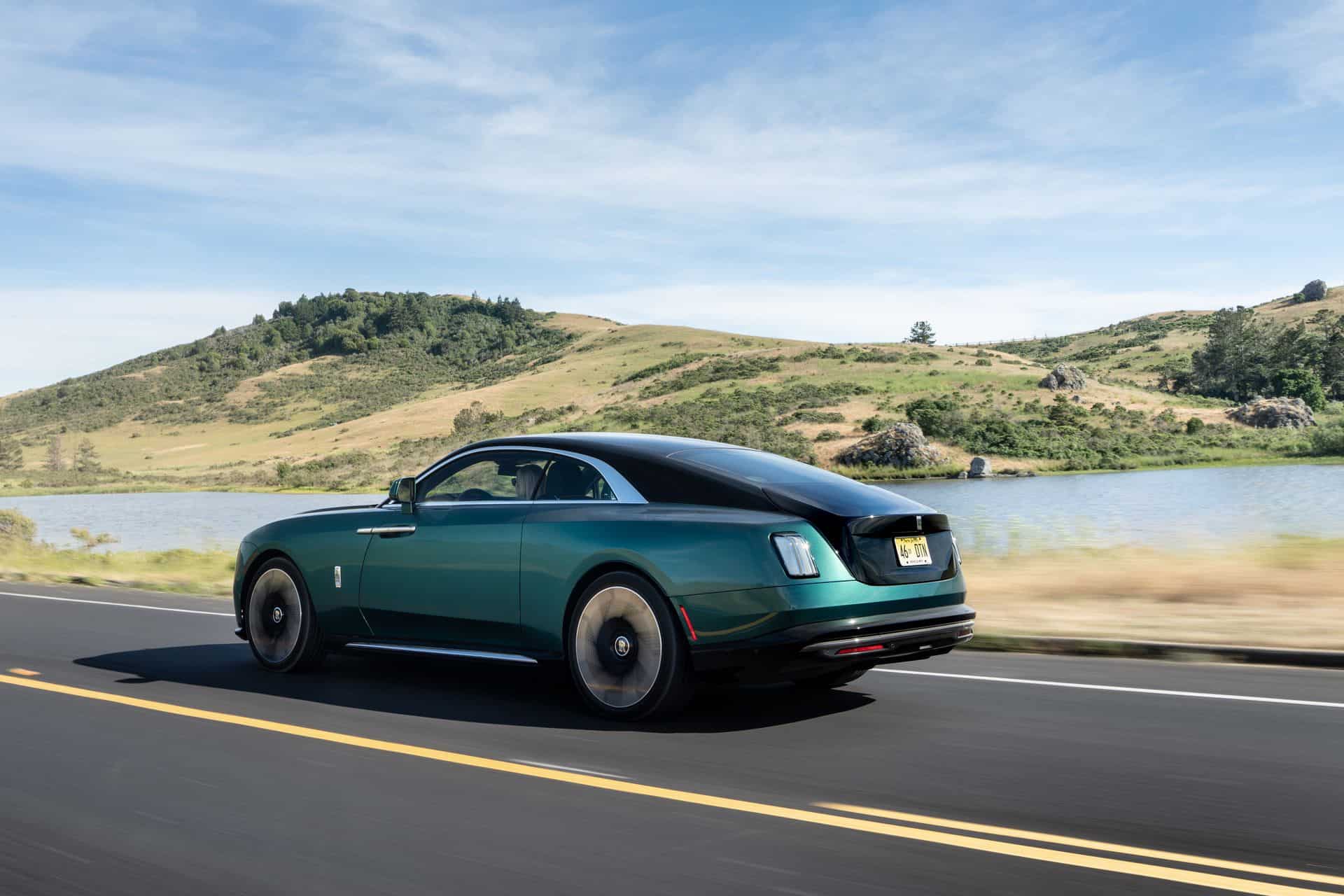
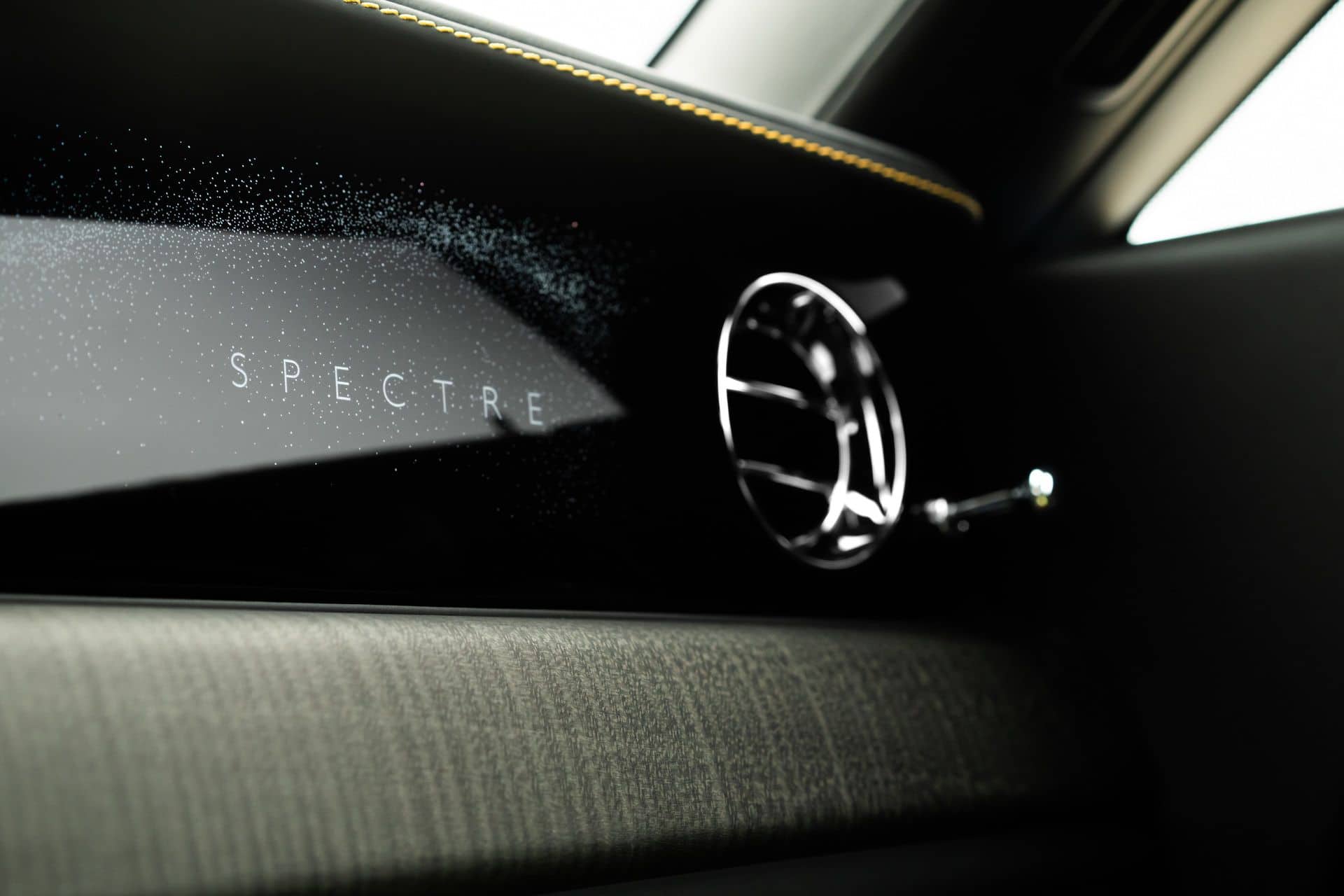
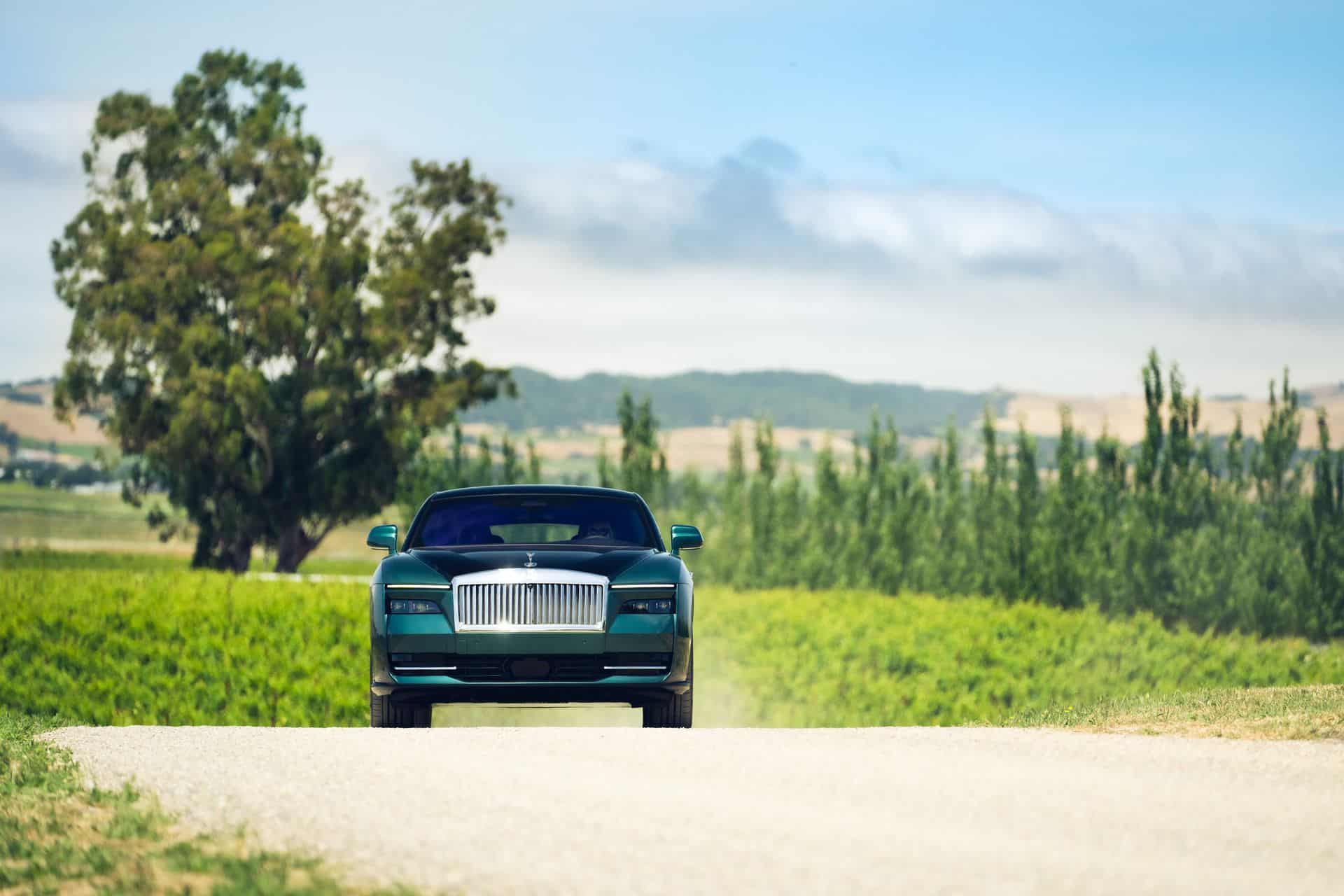
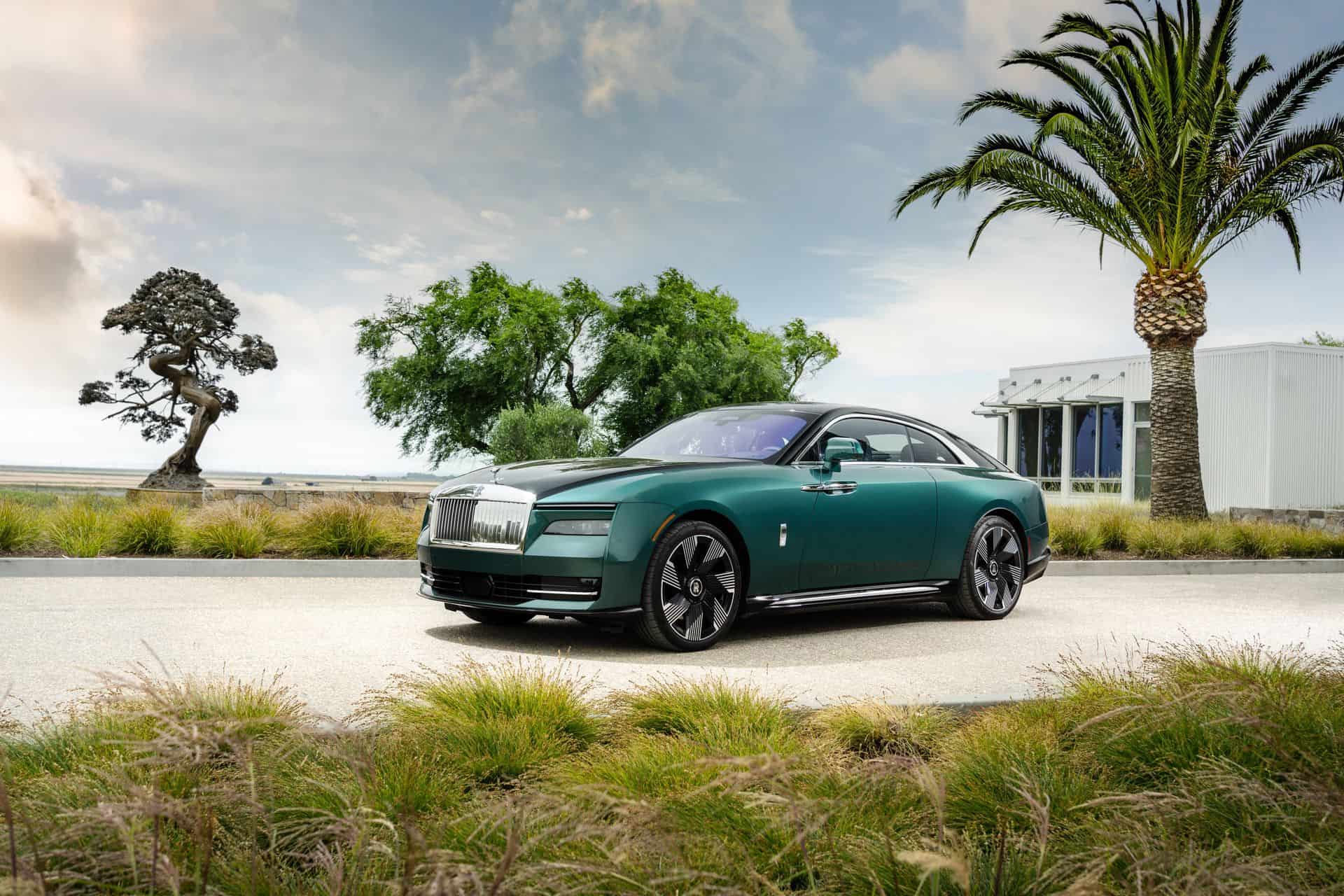
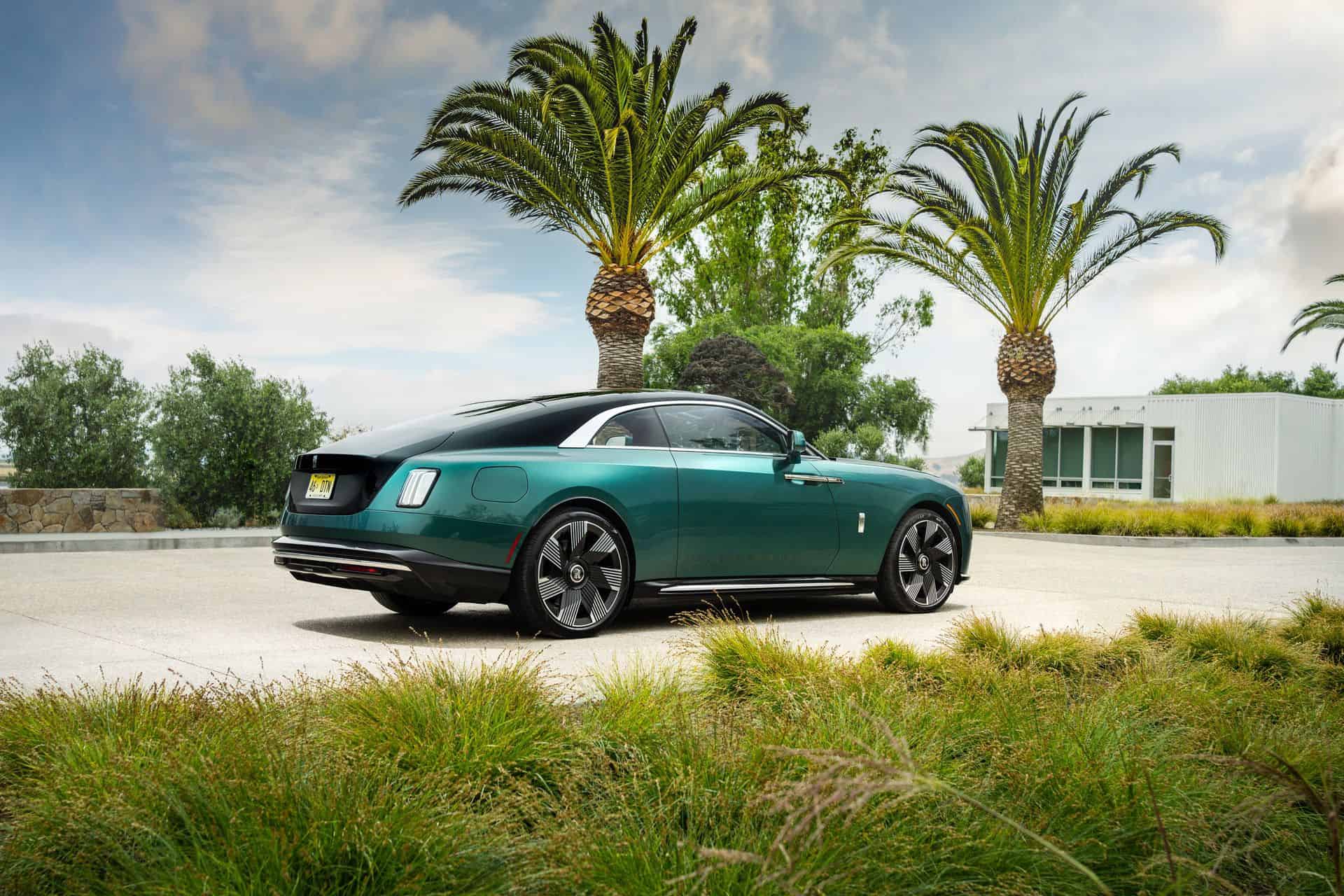
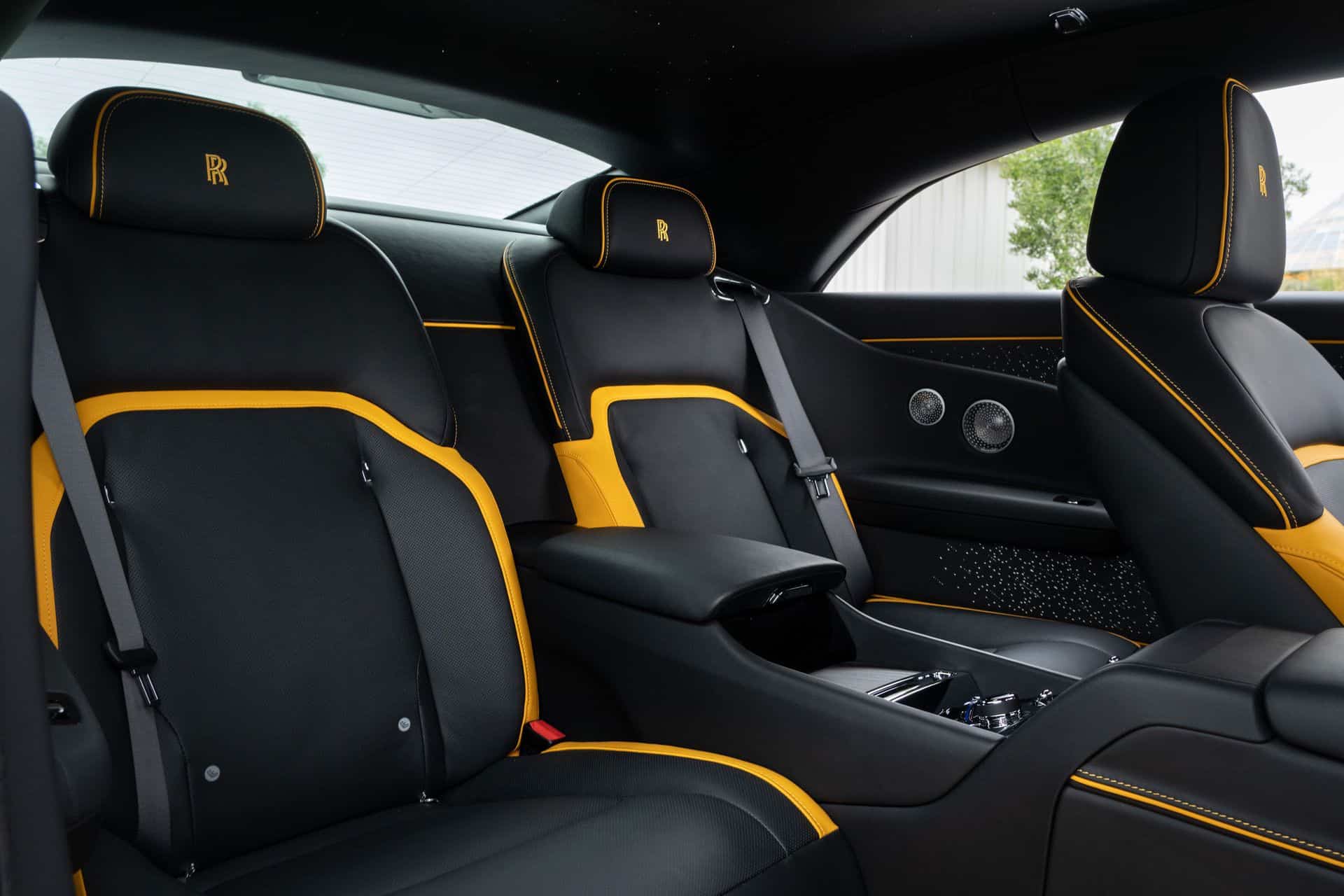
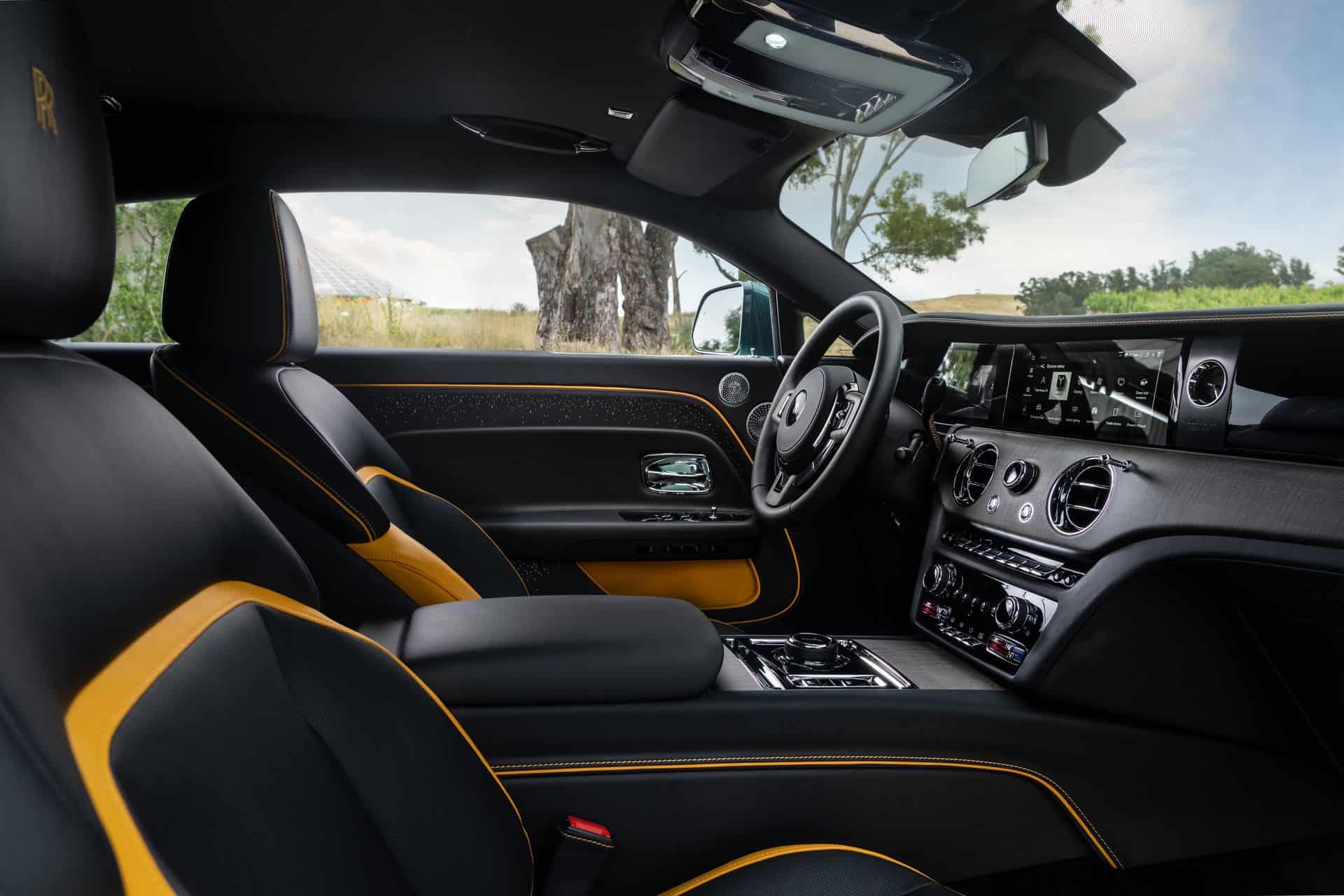
via Tingle Cars
